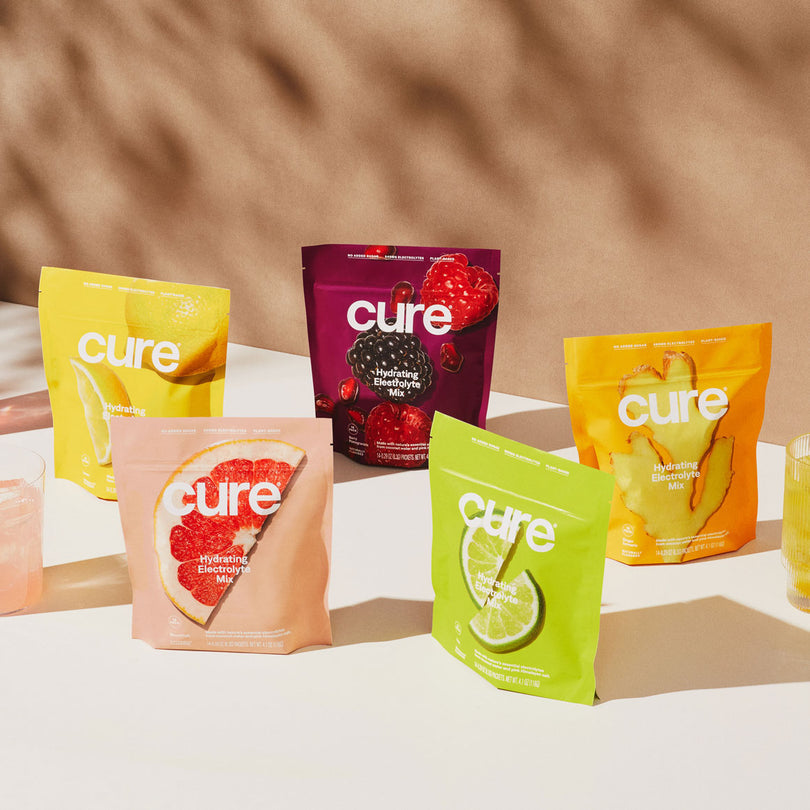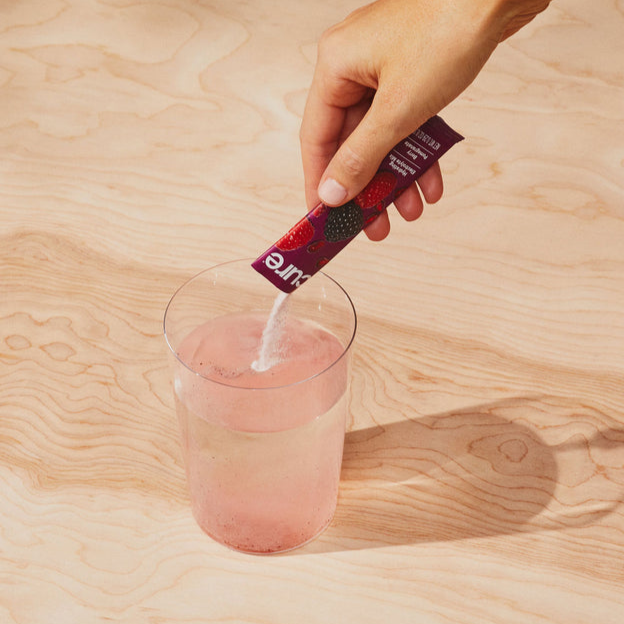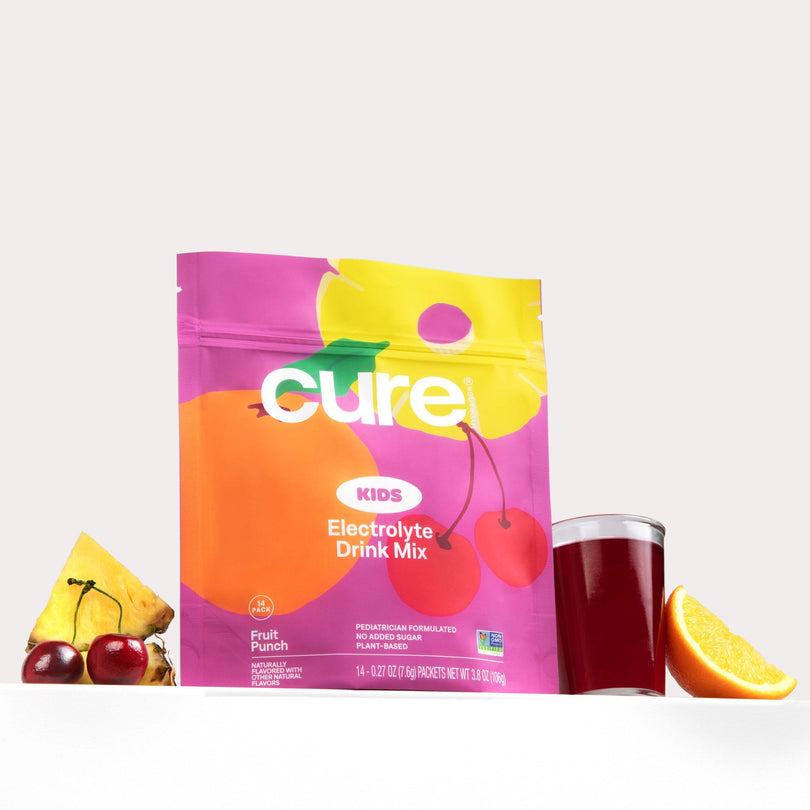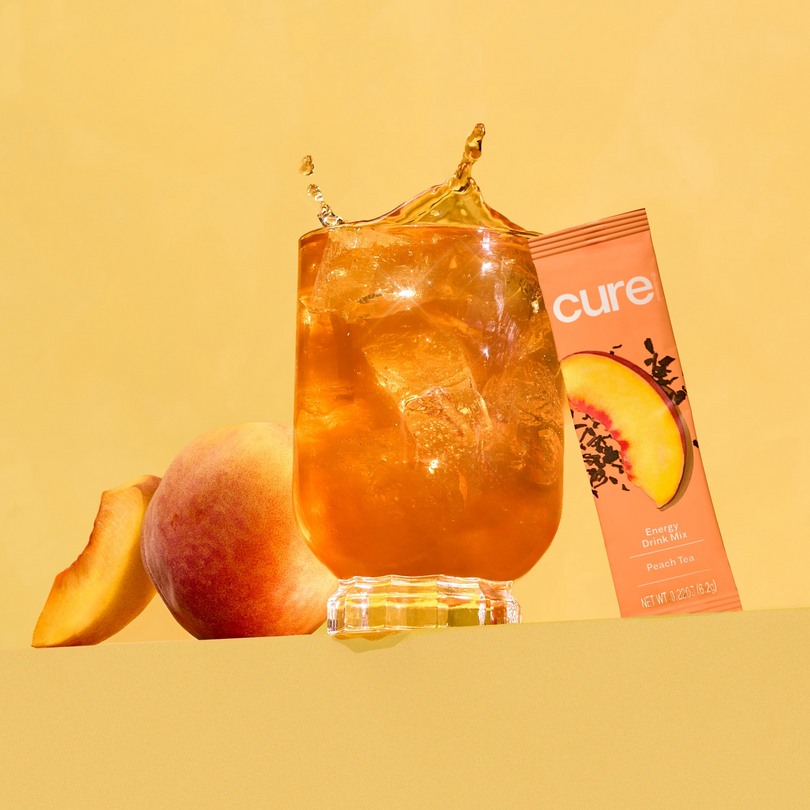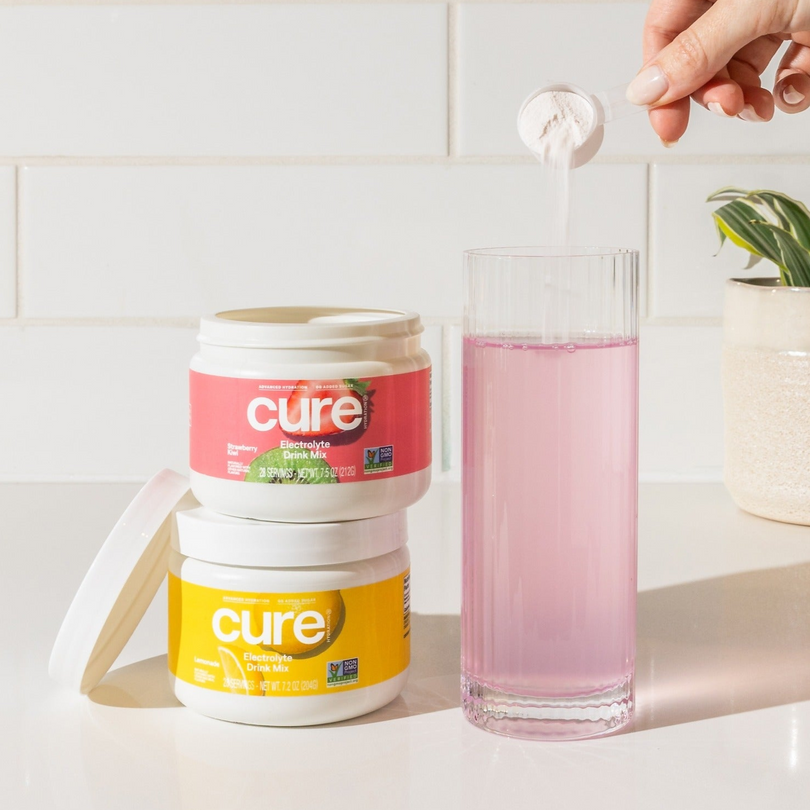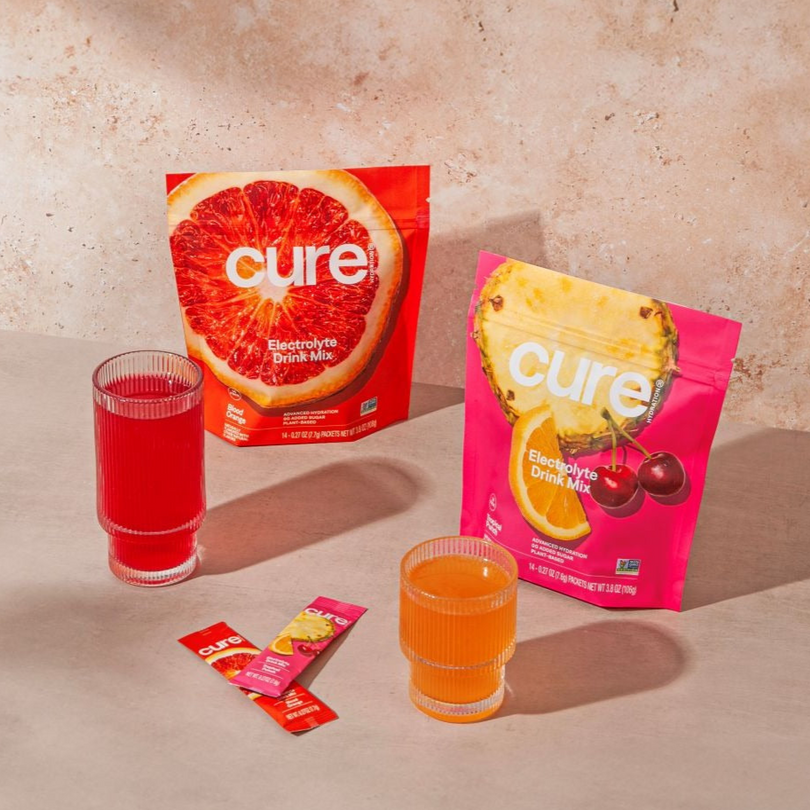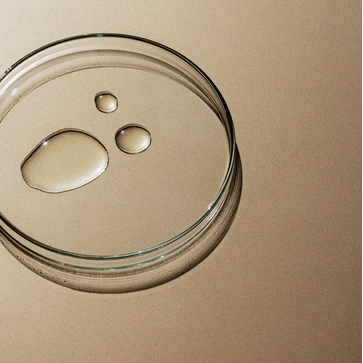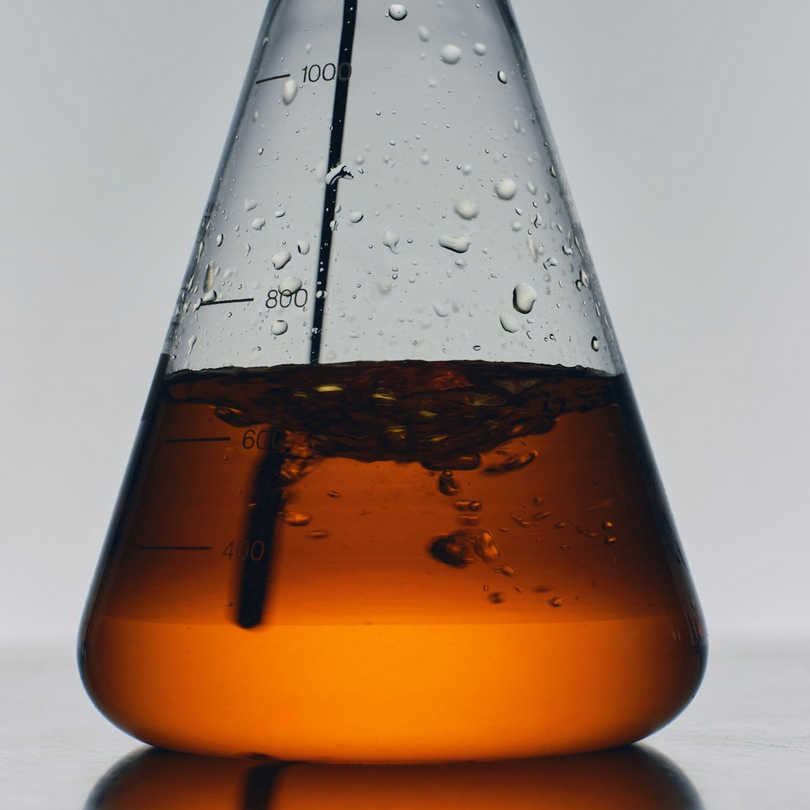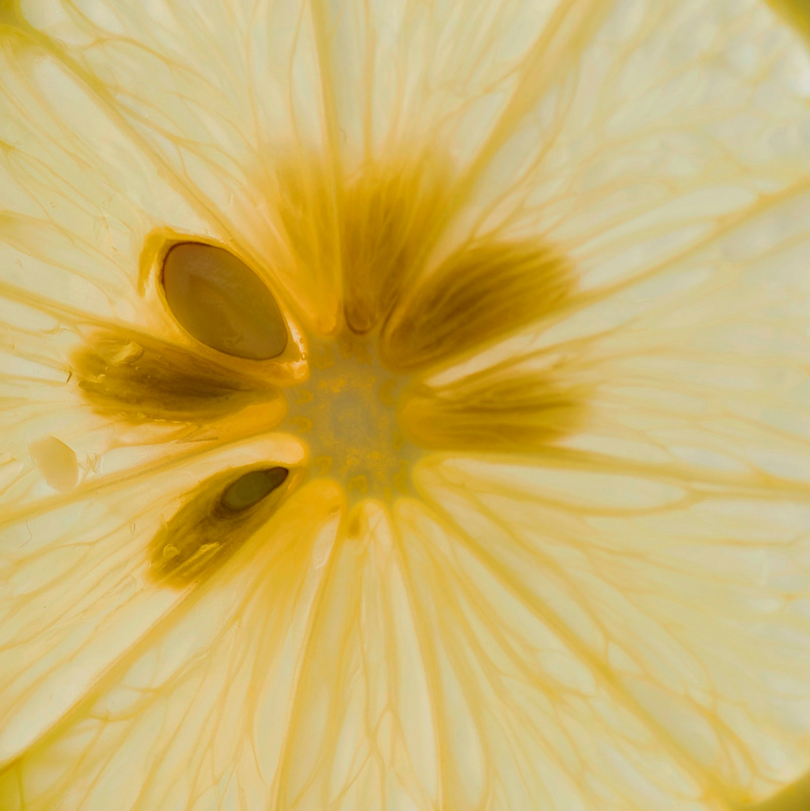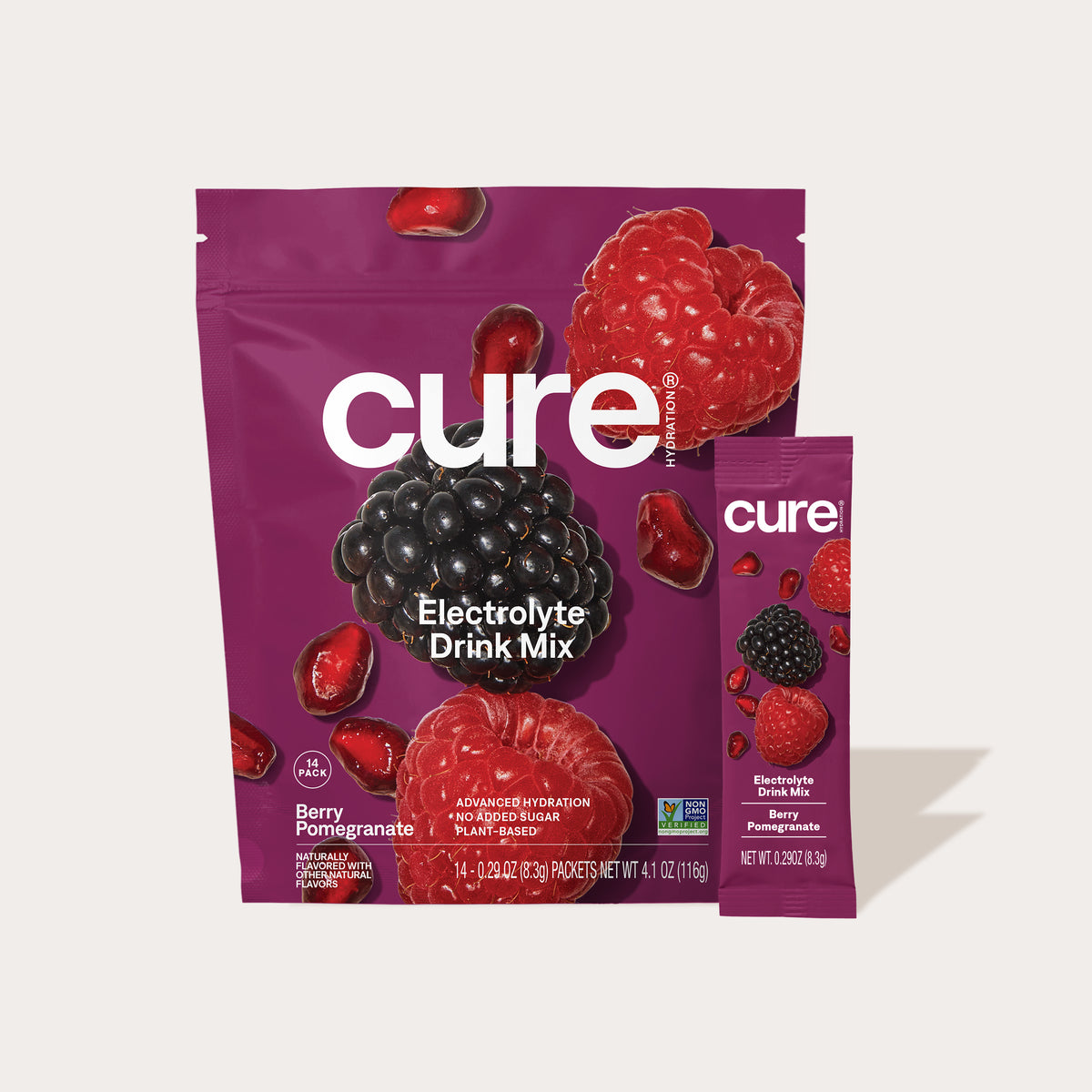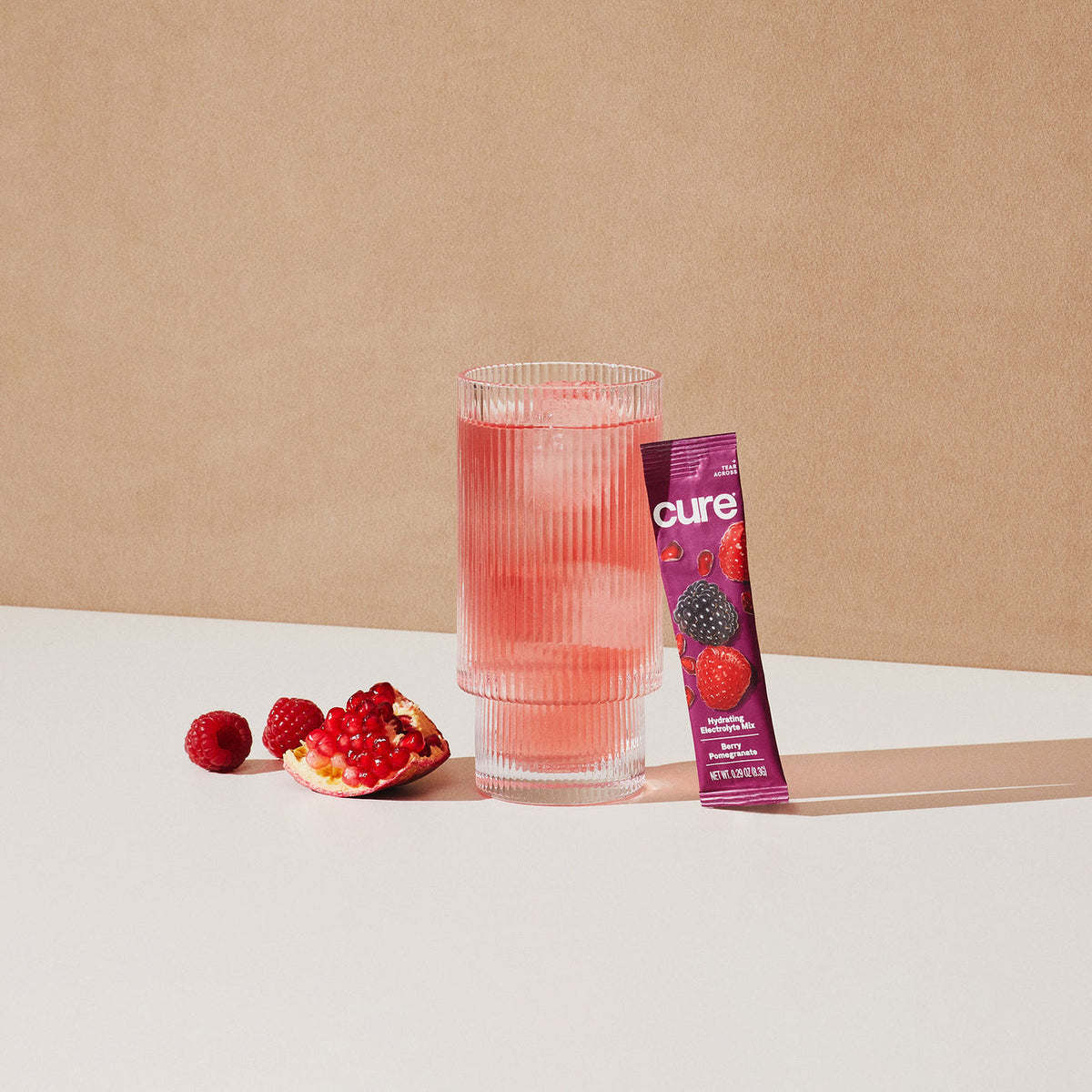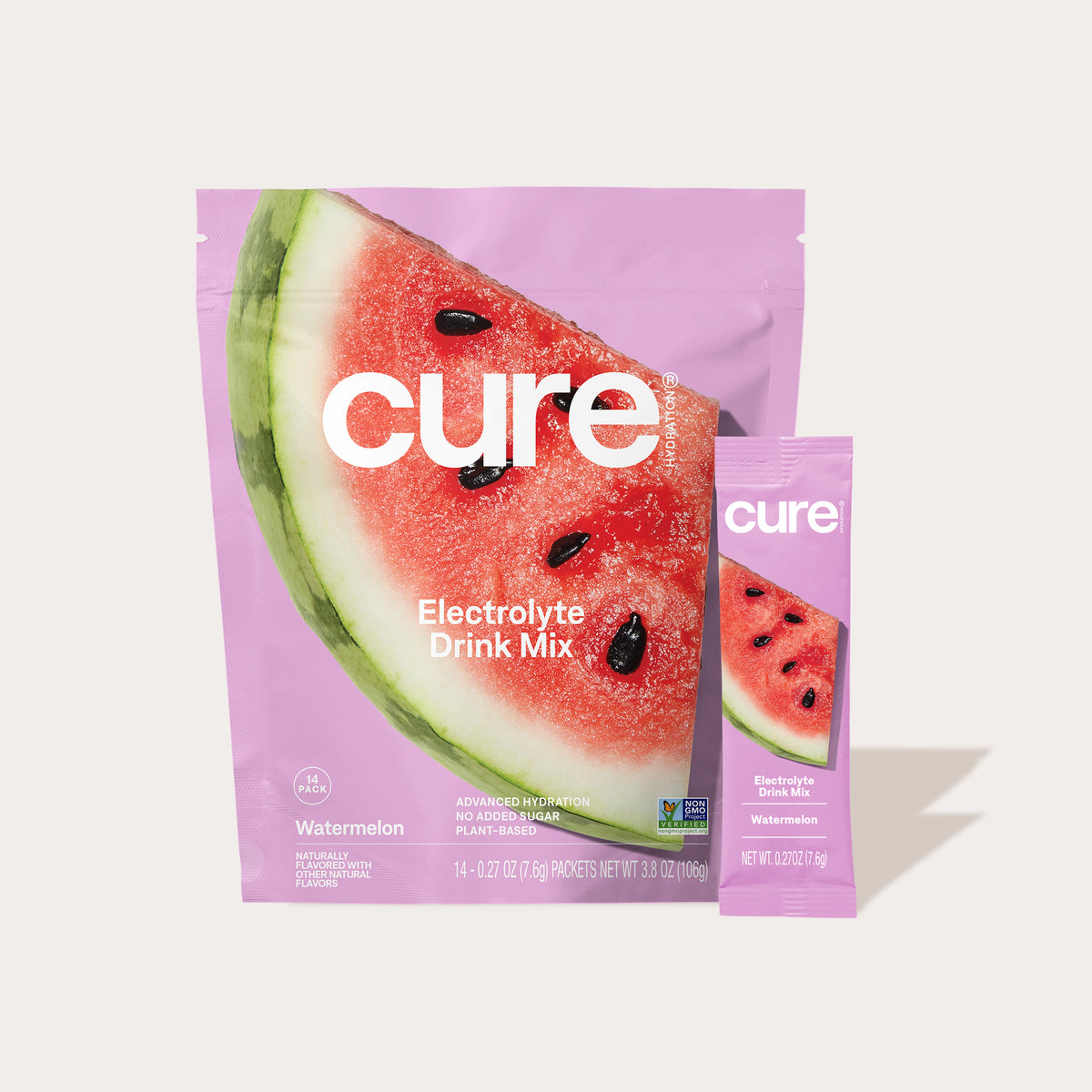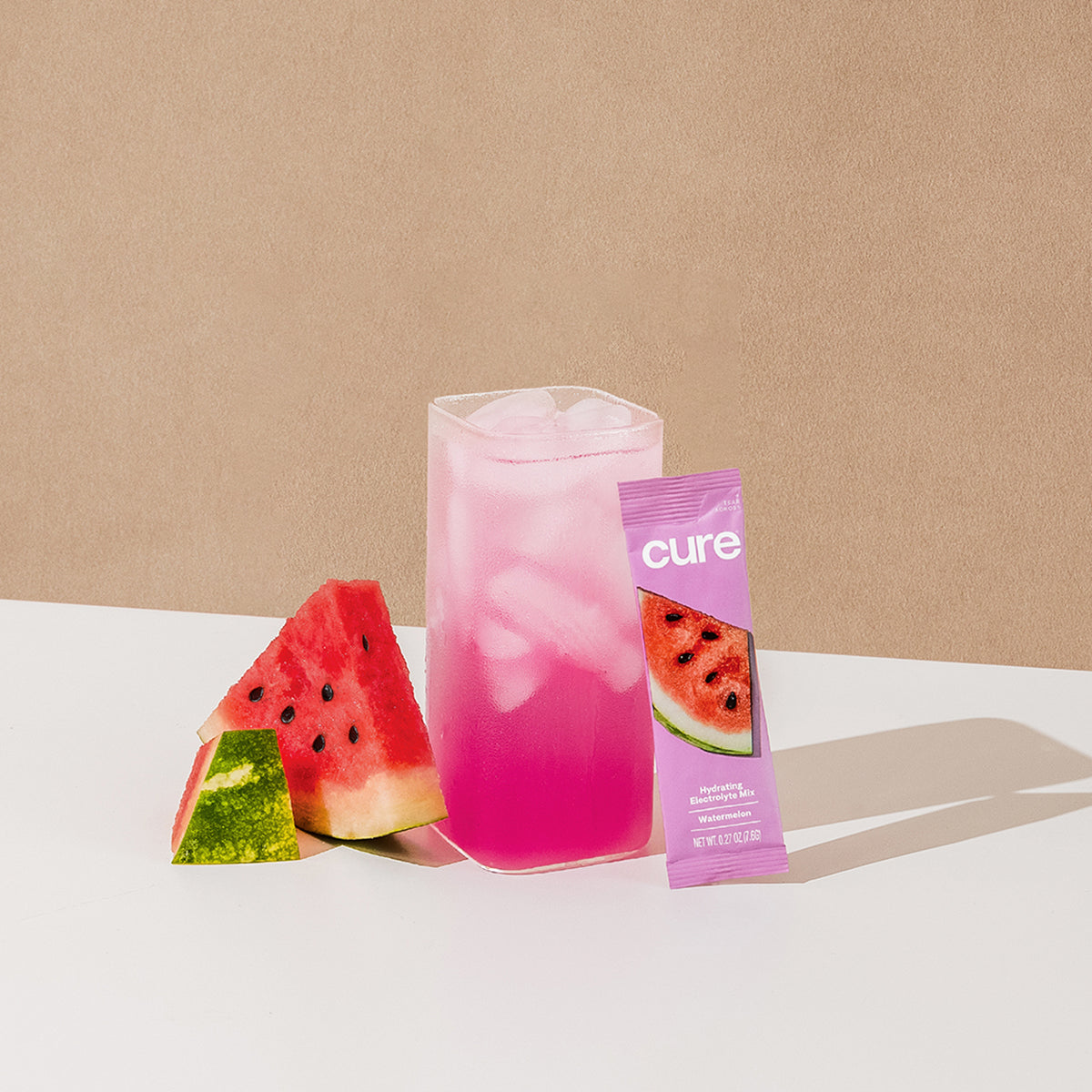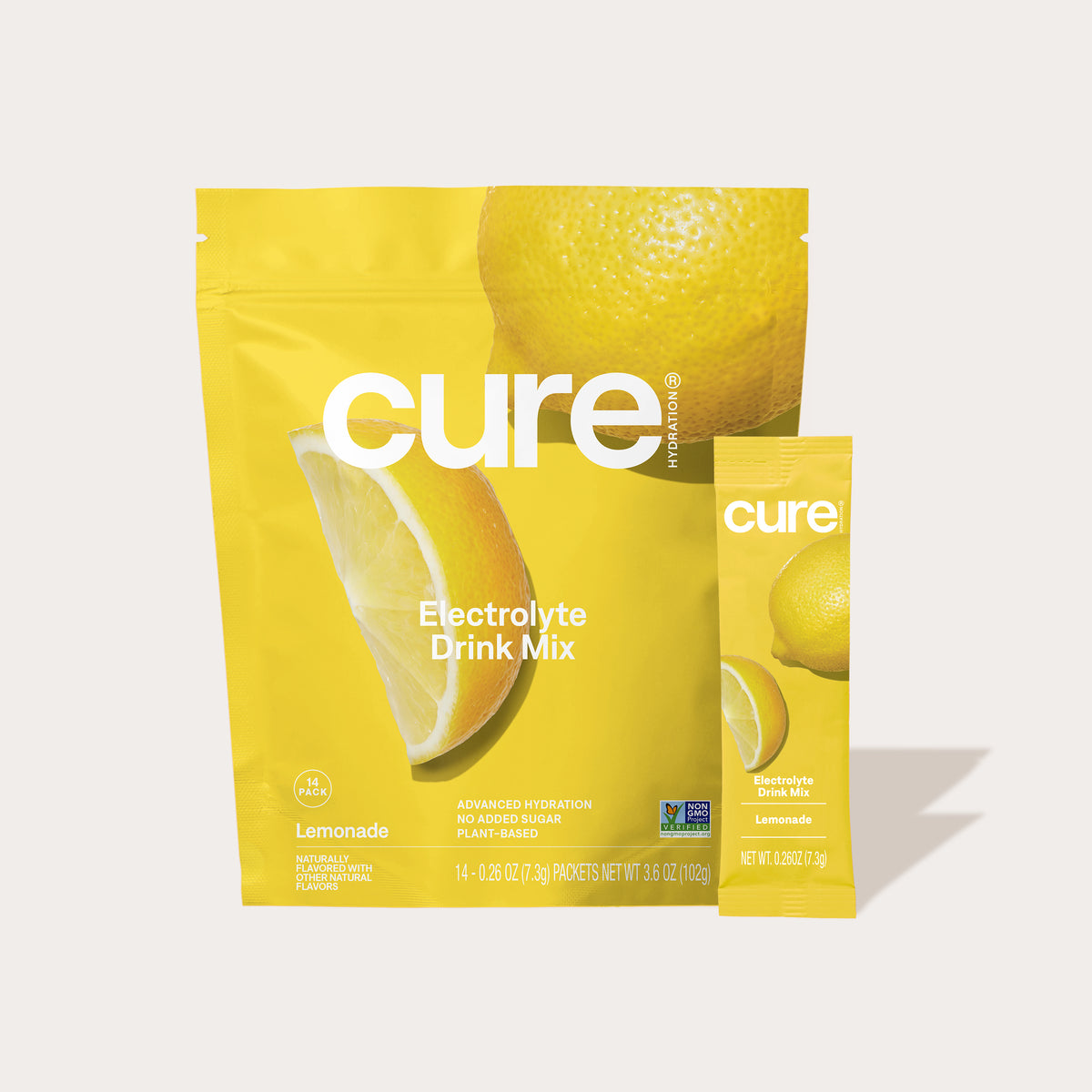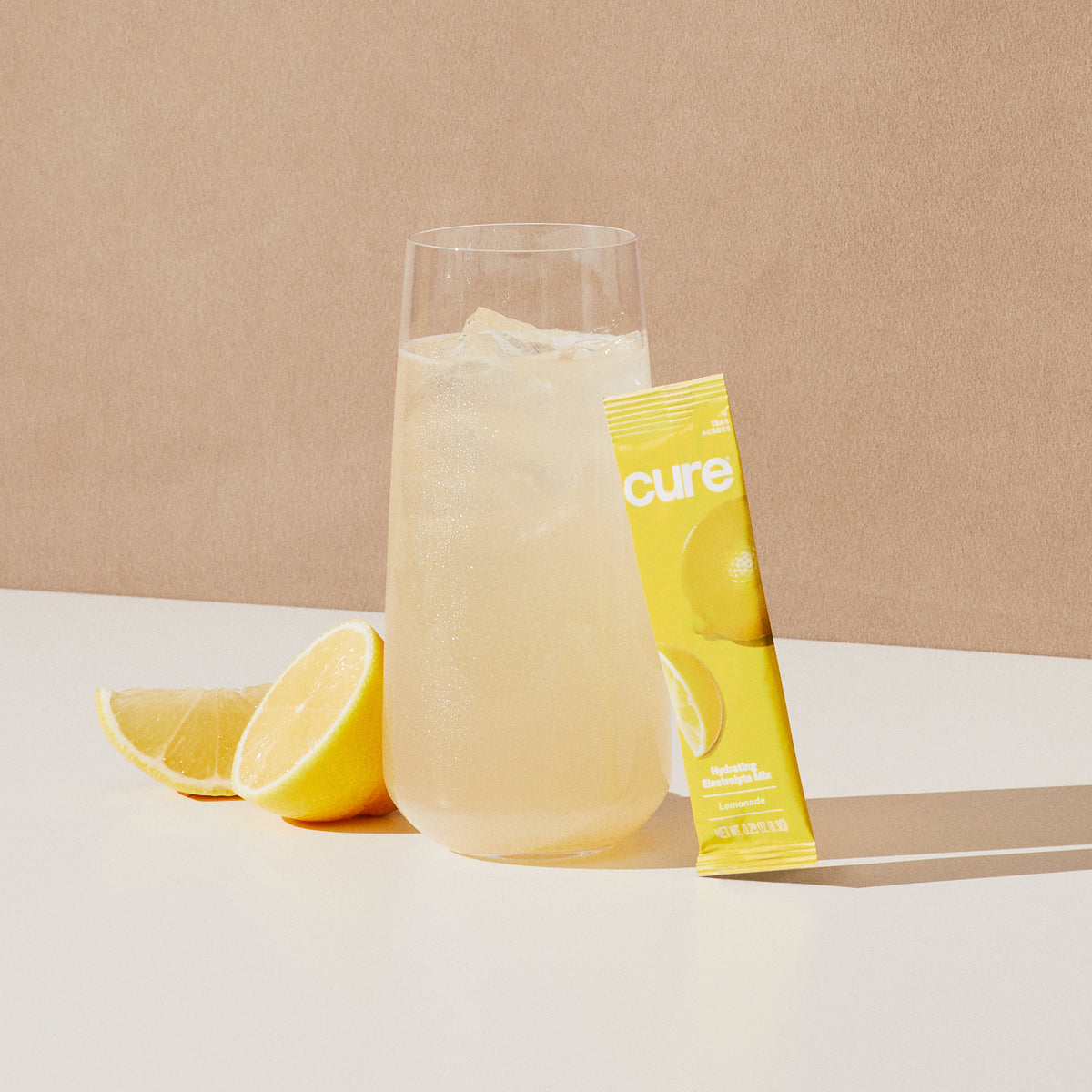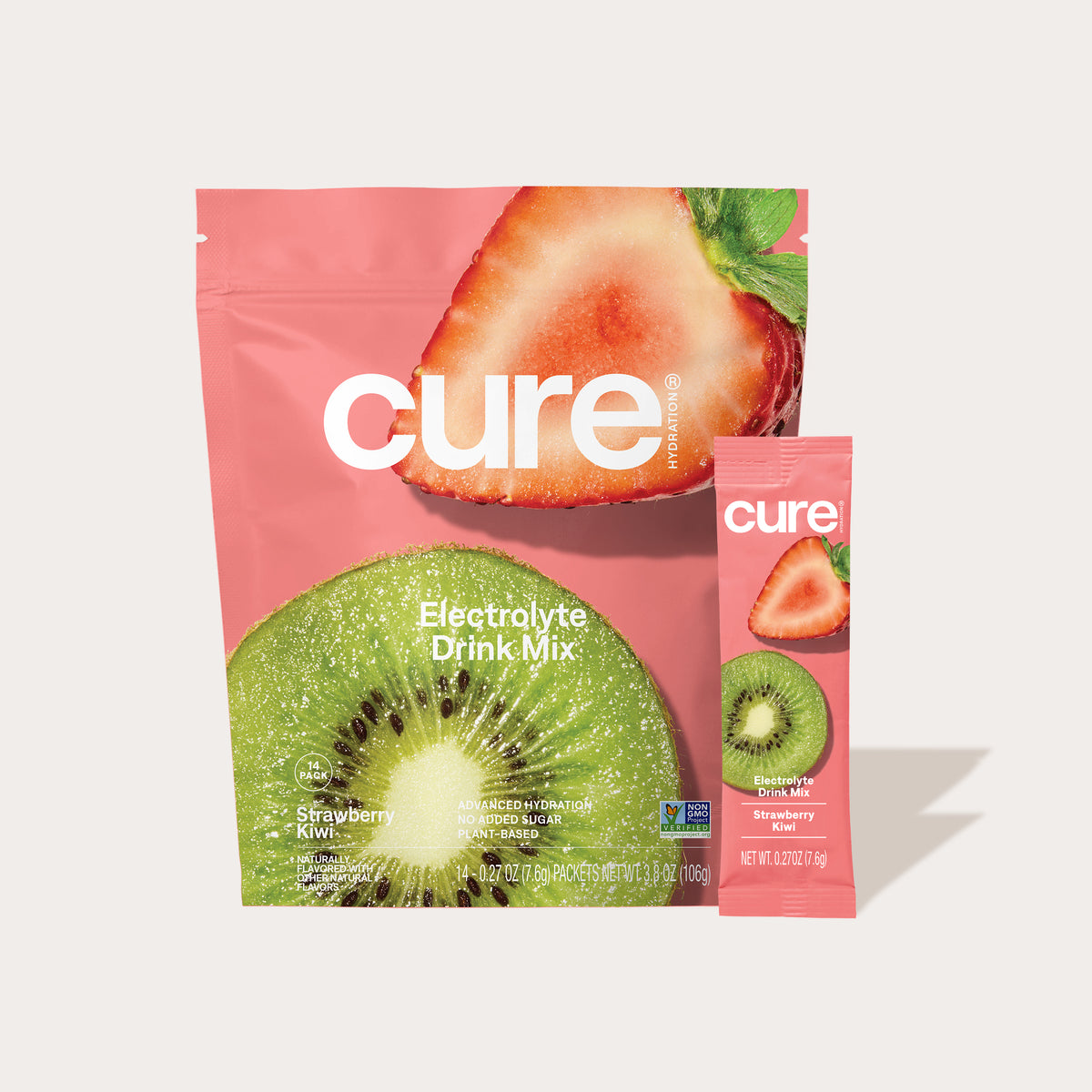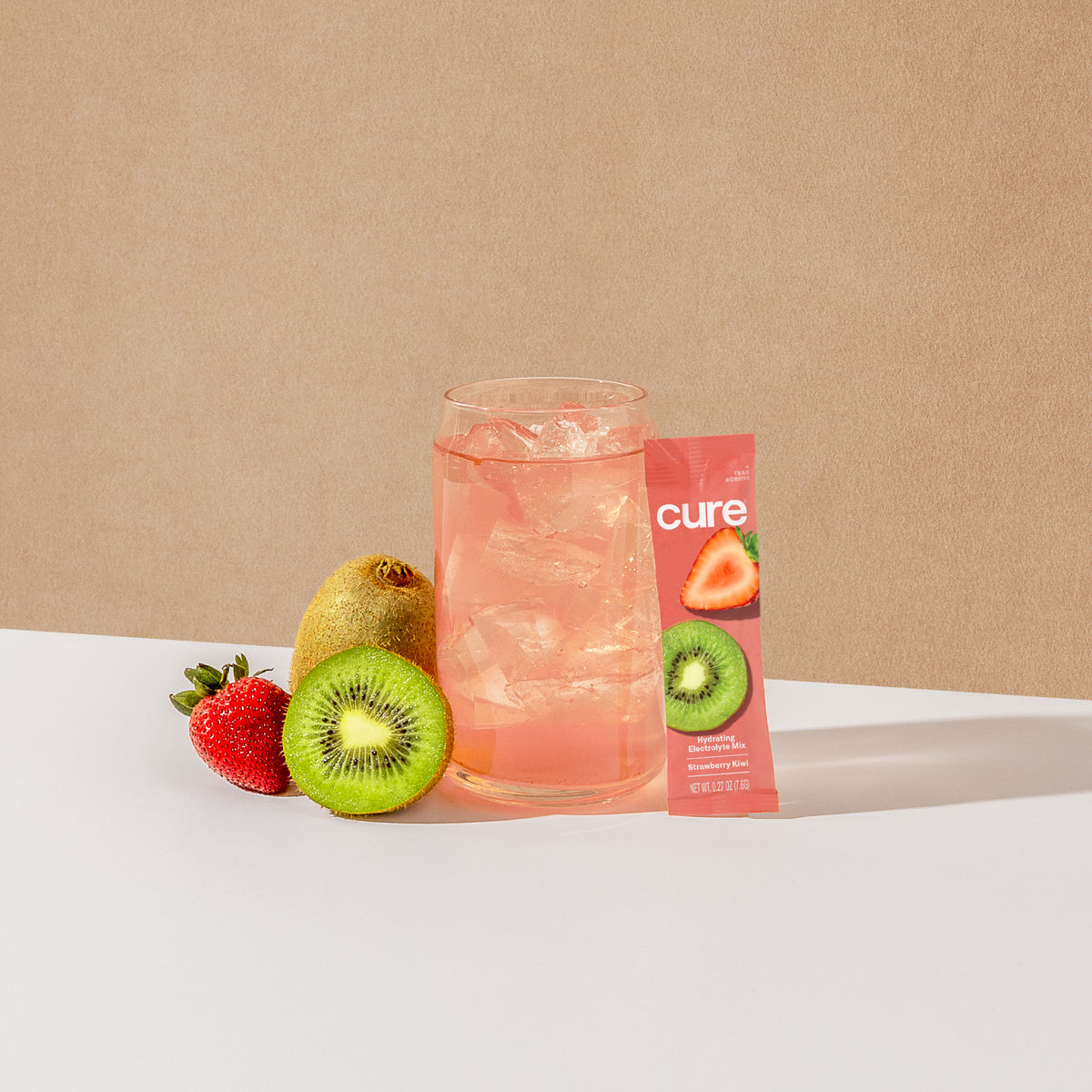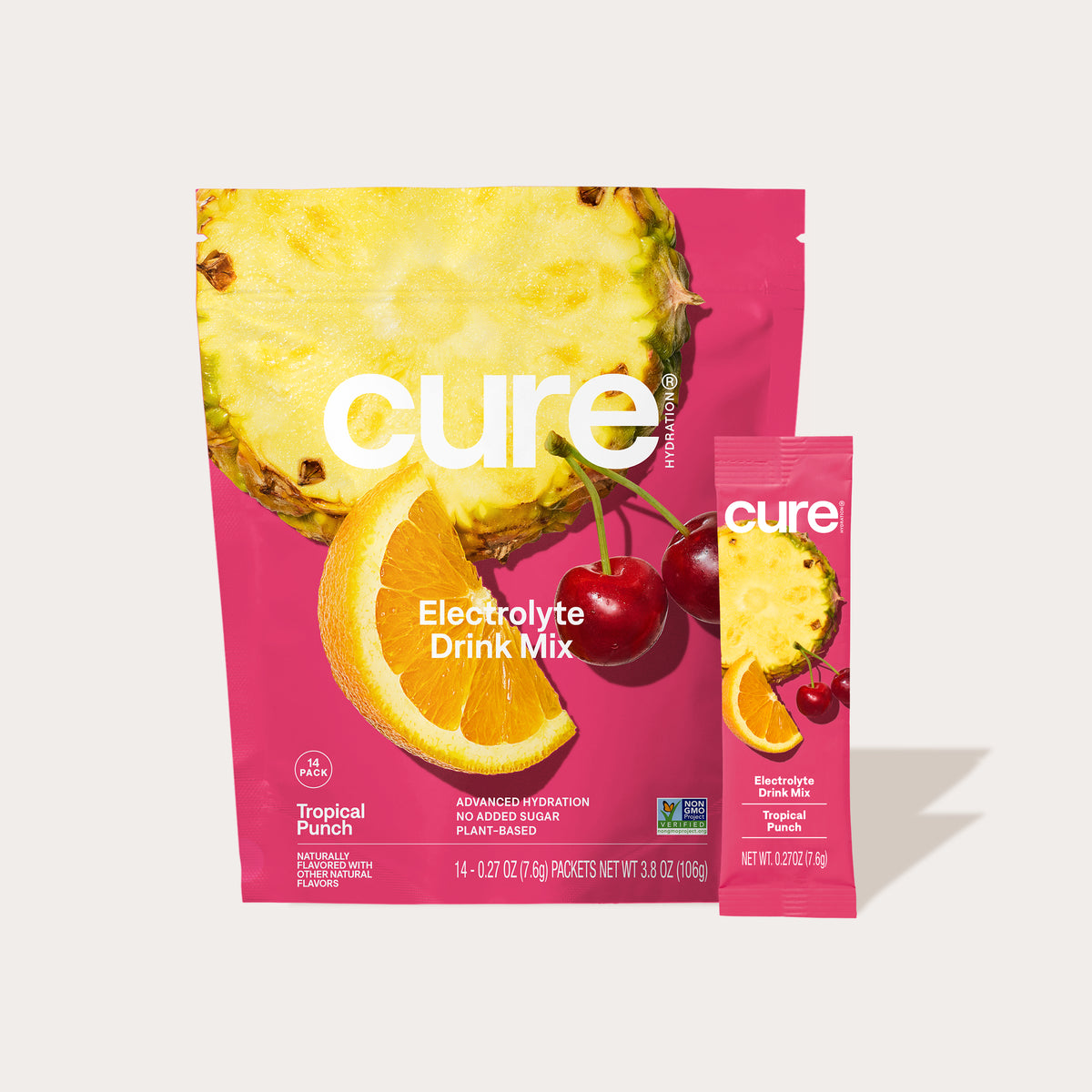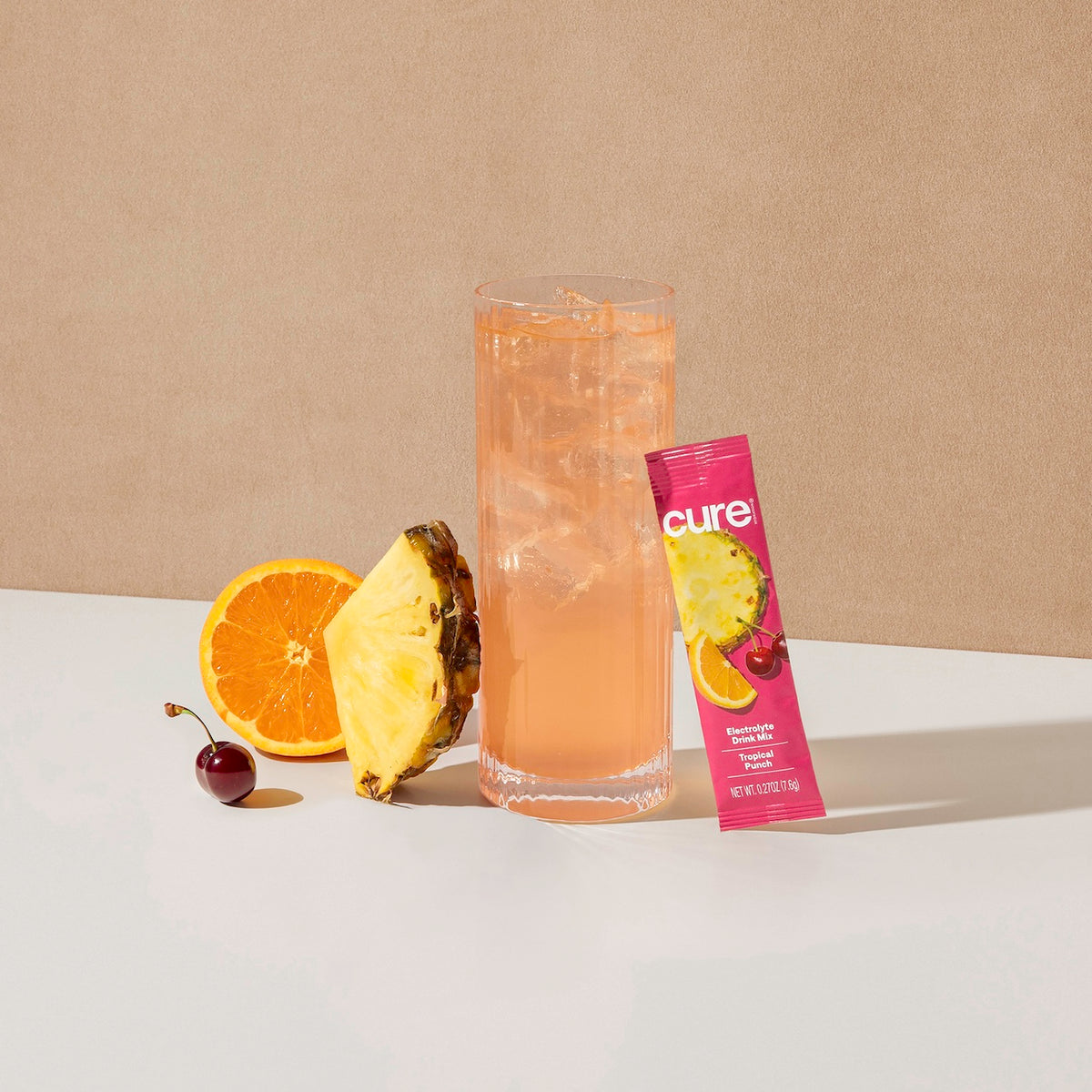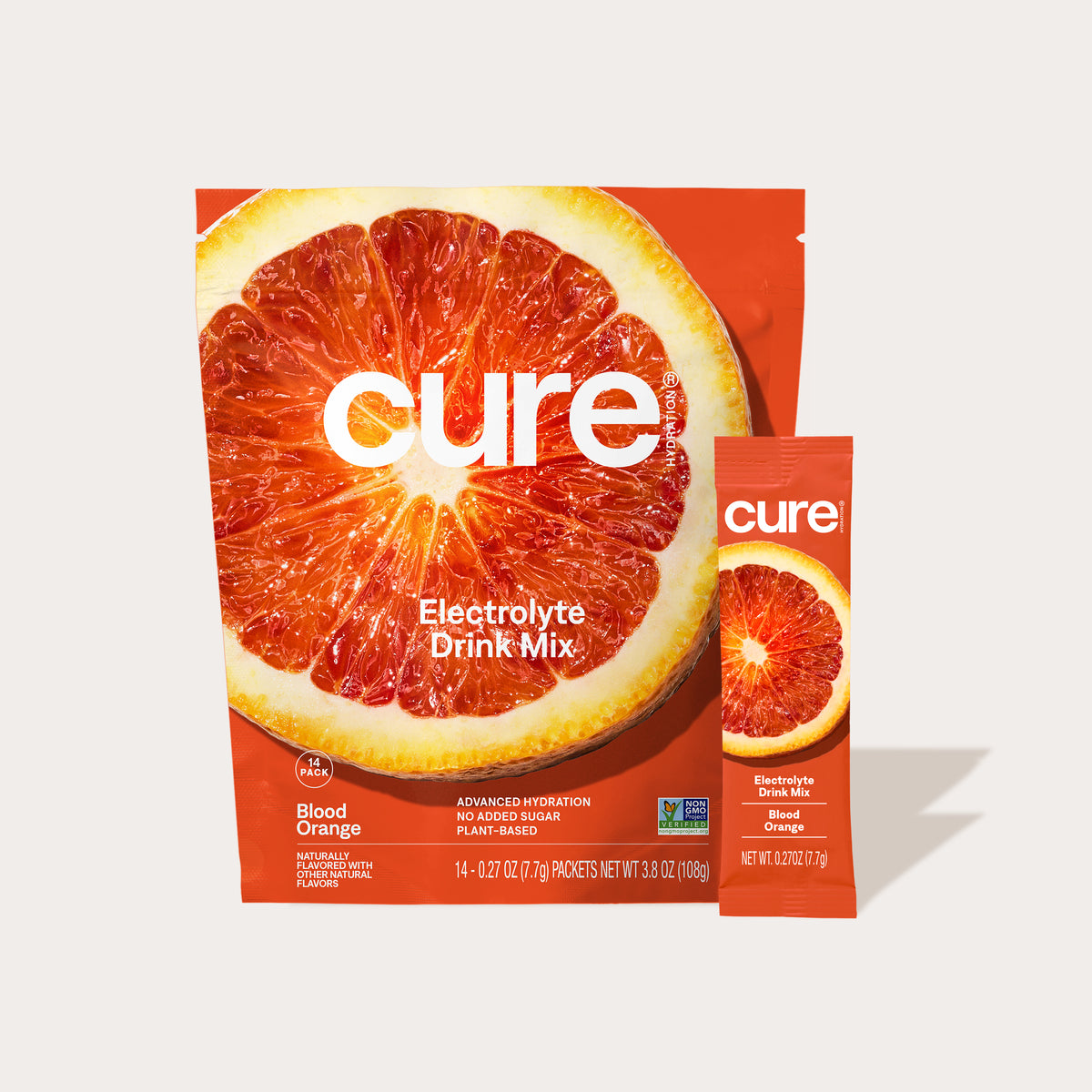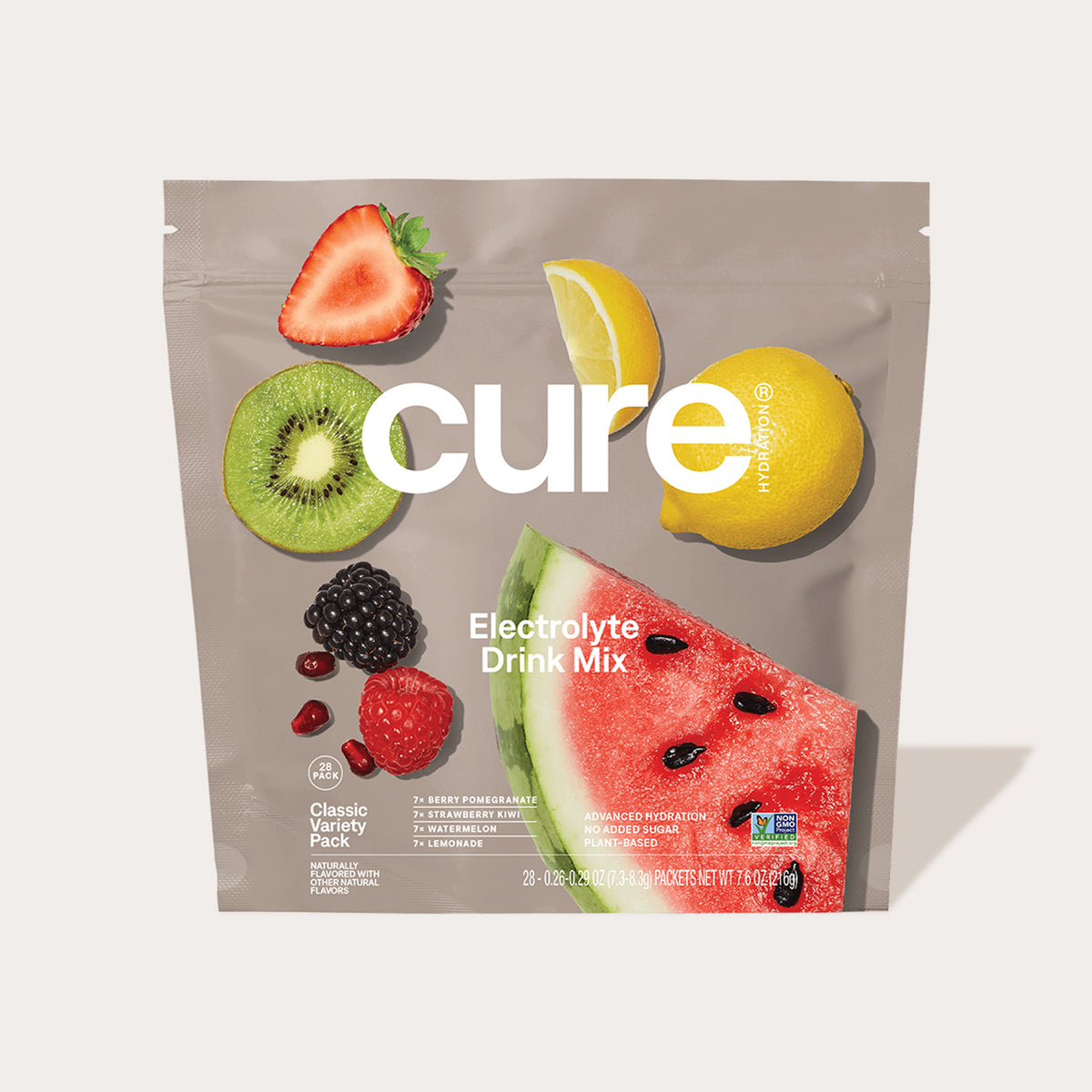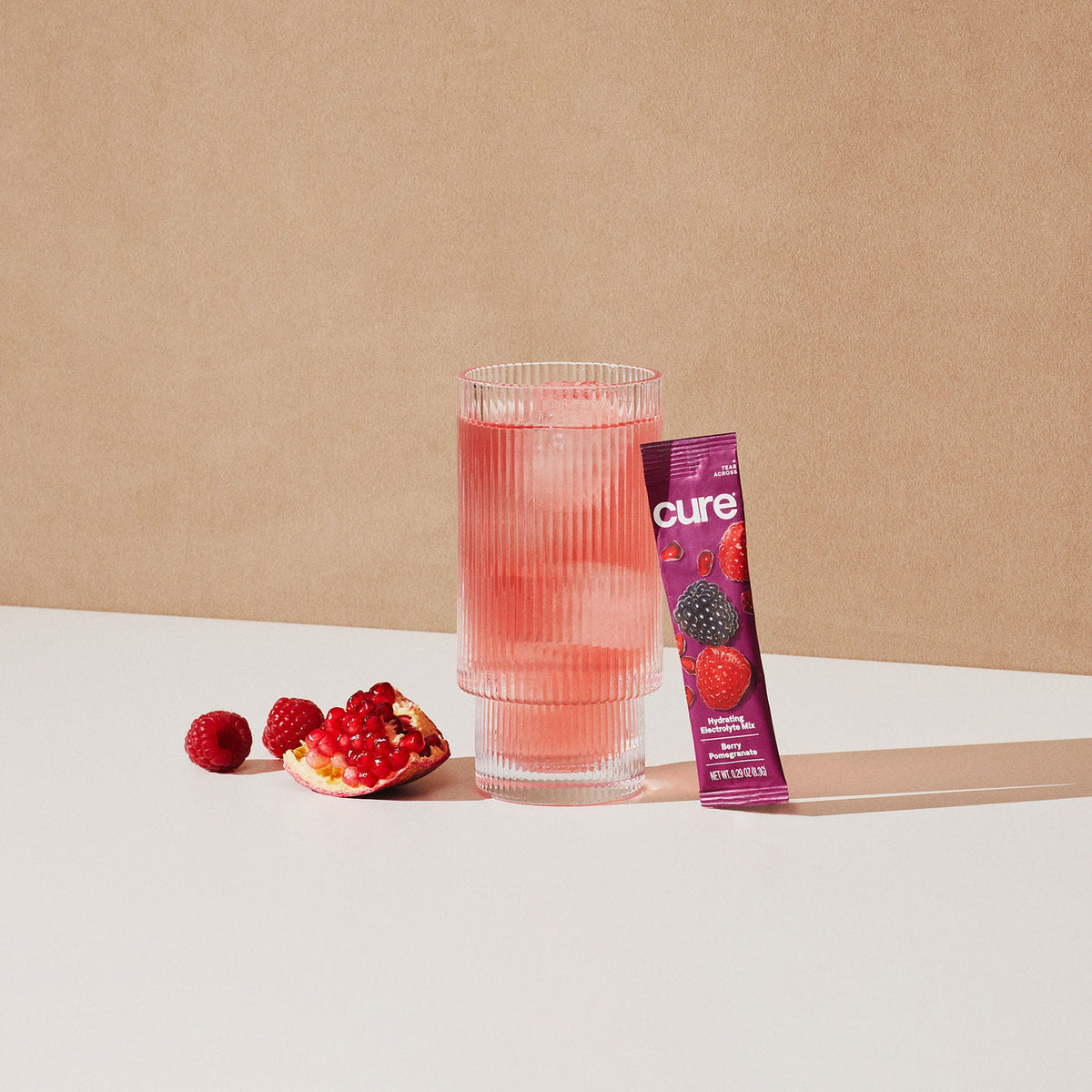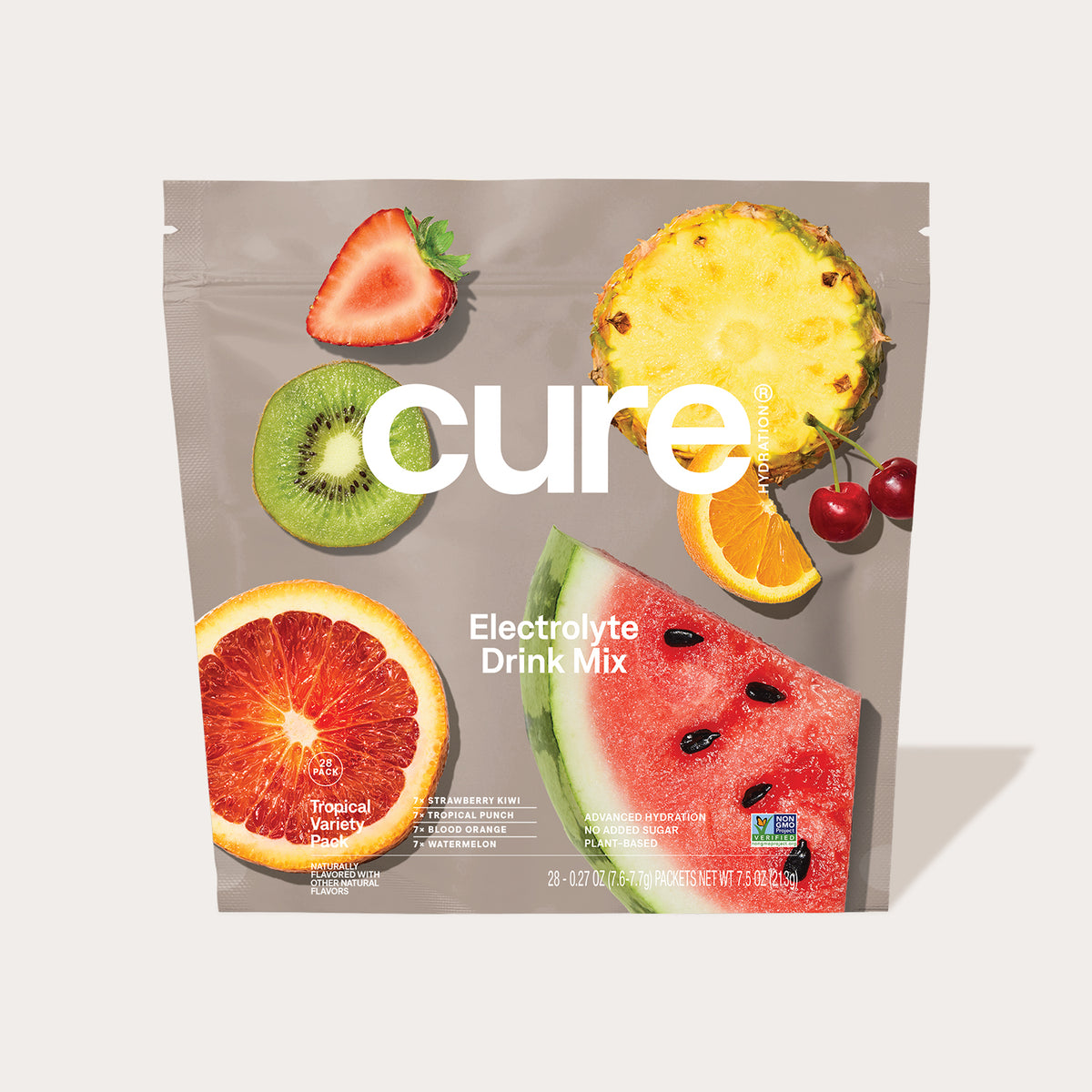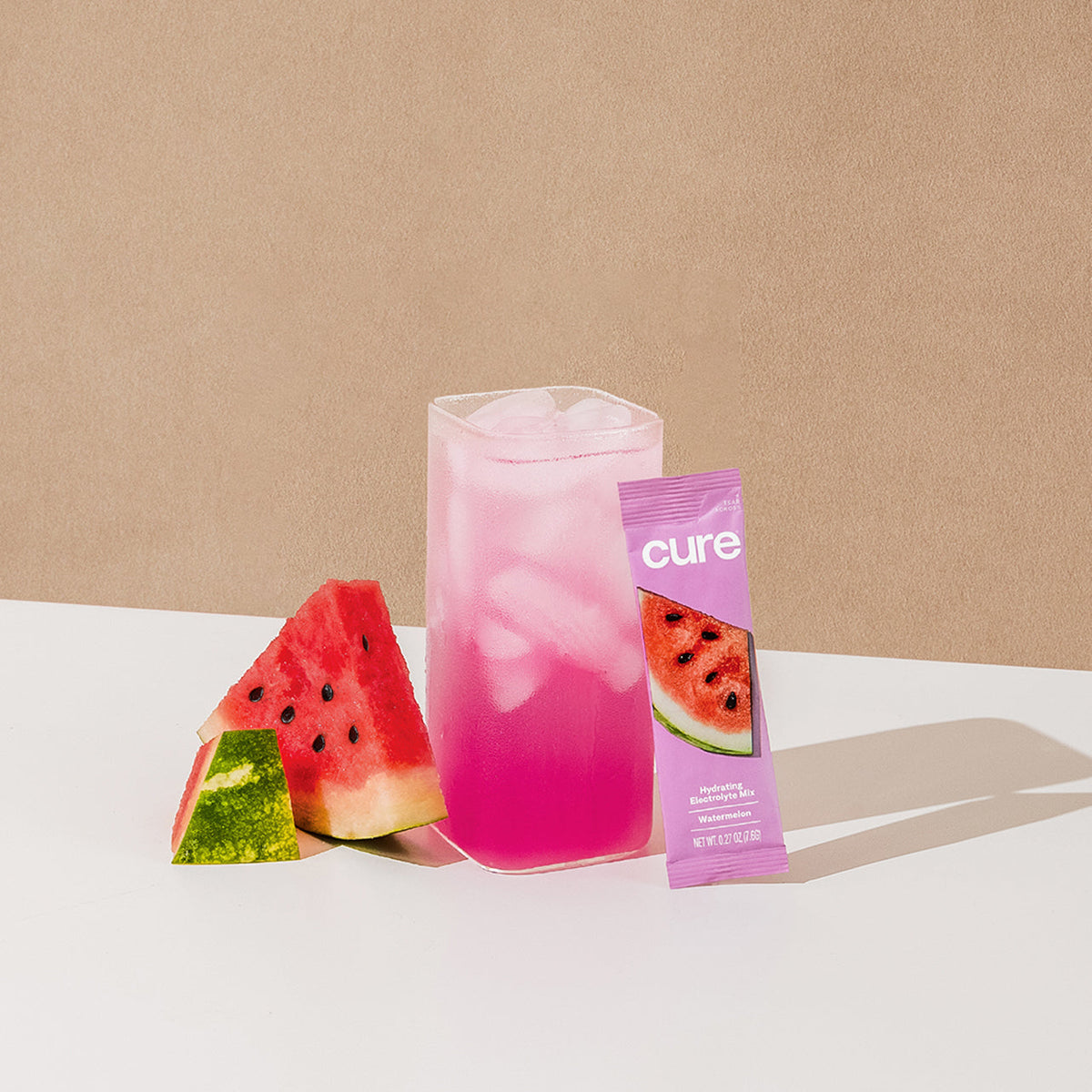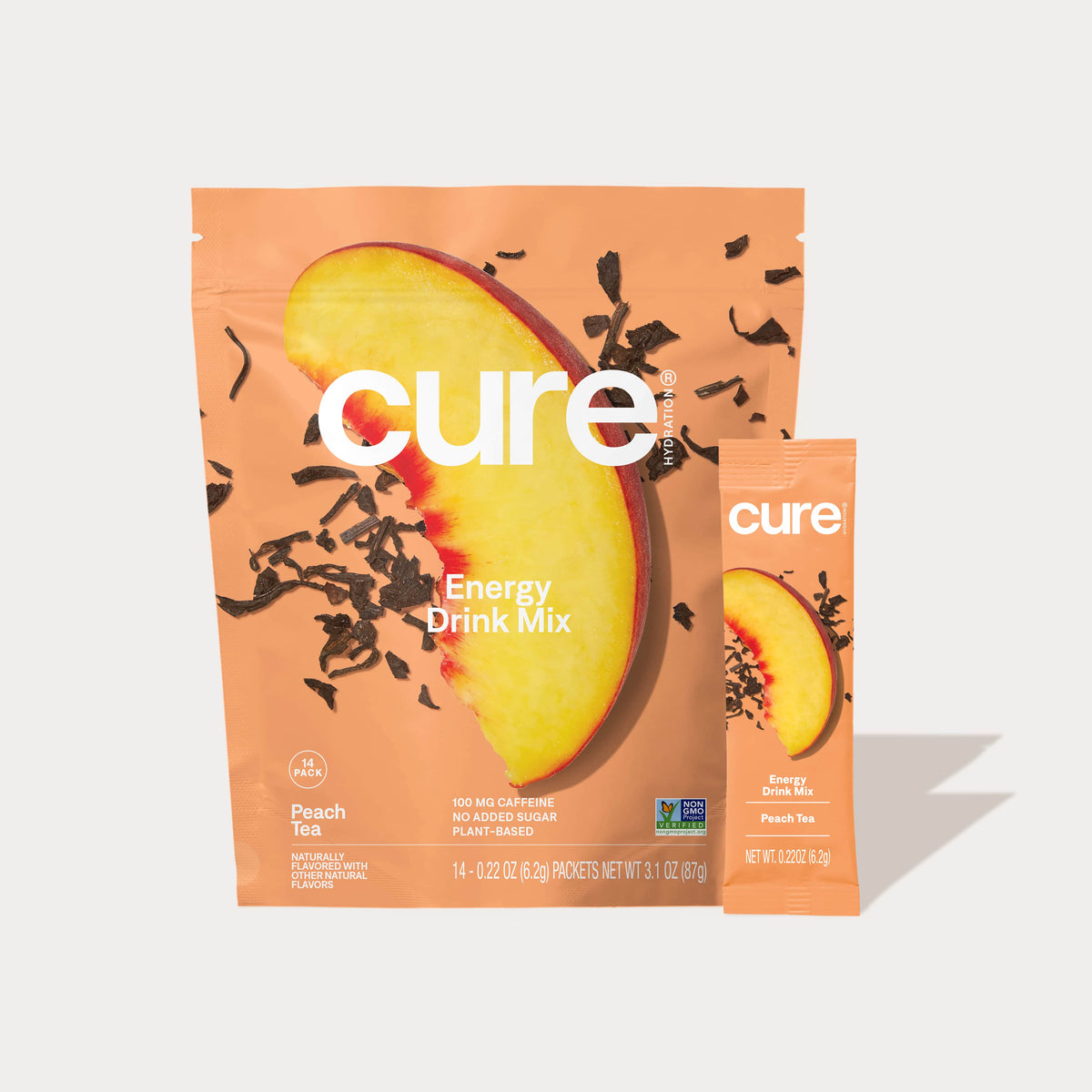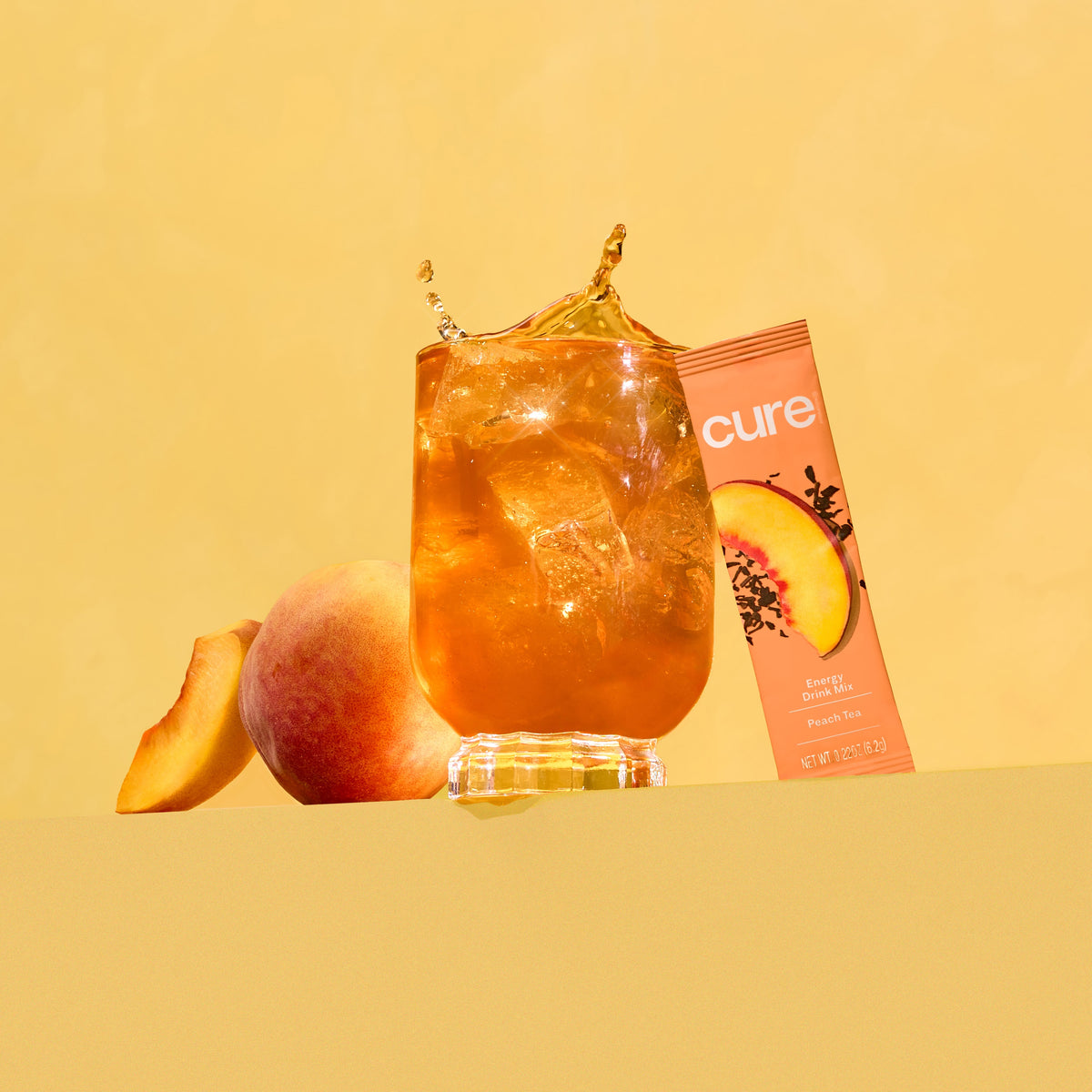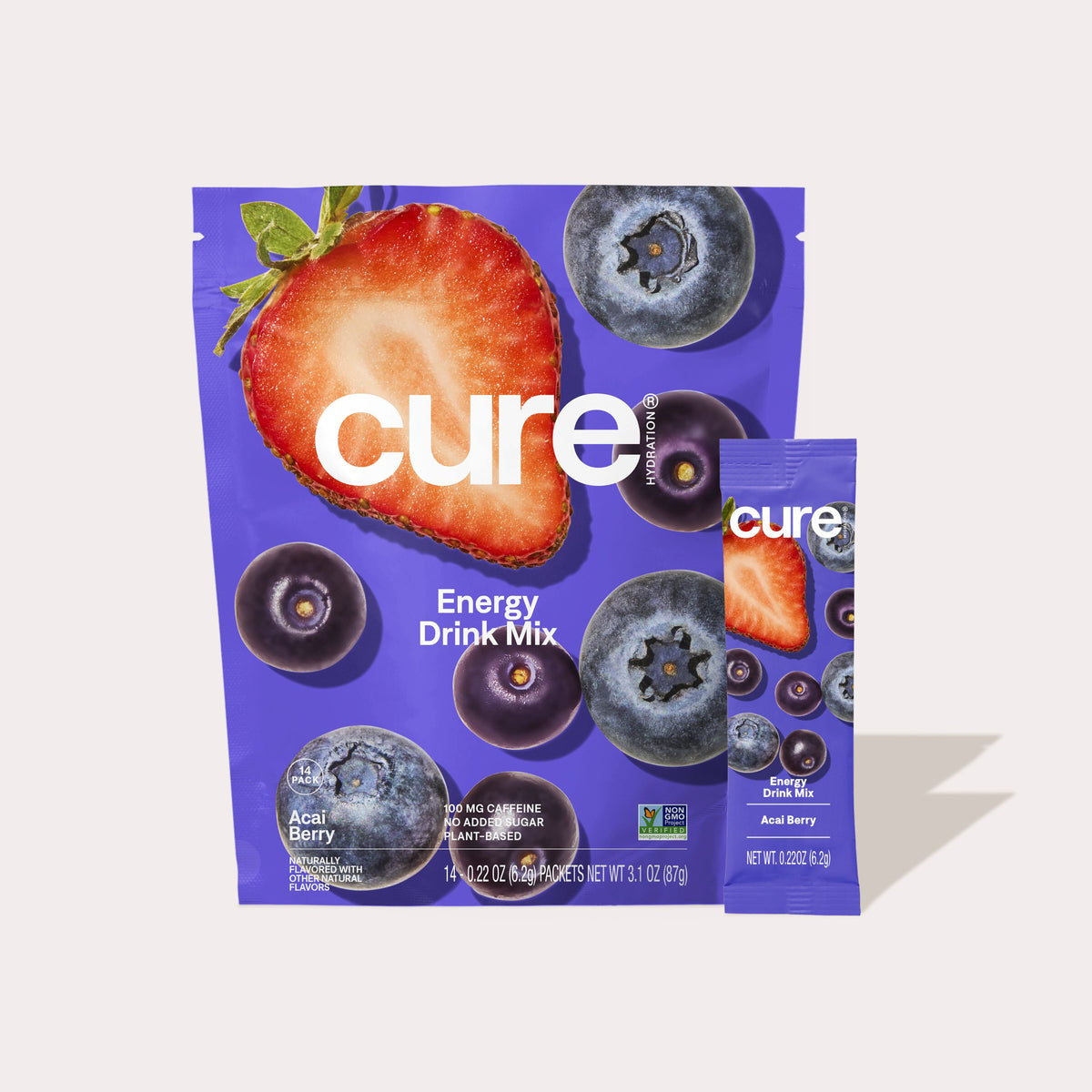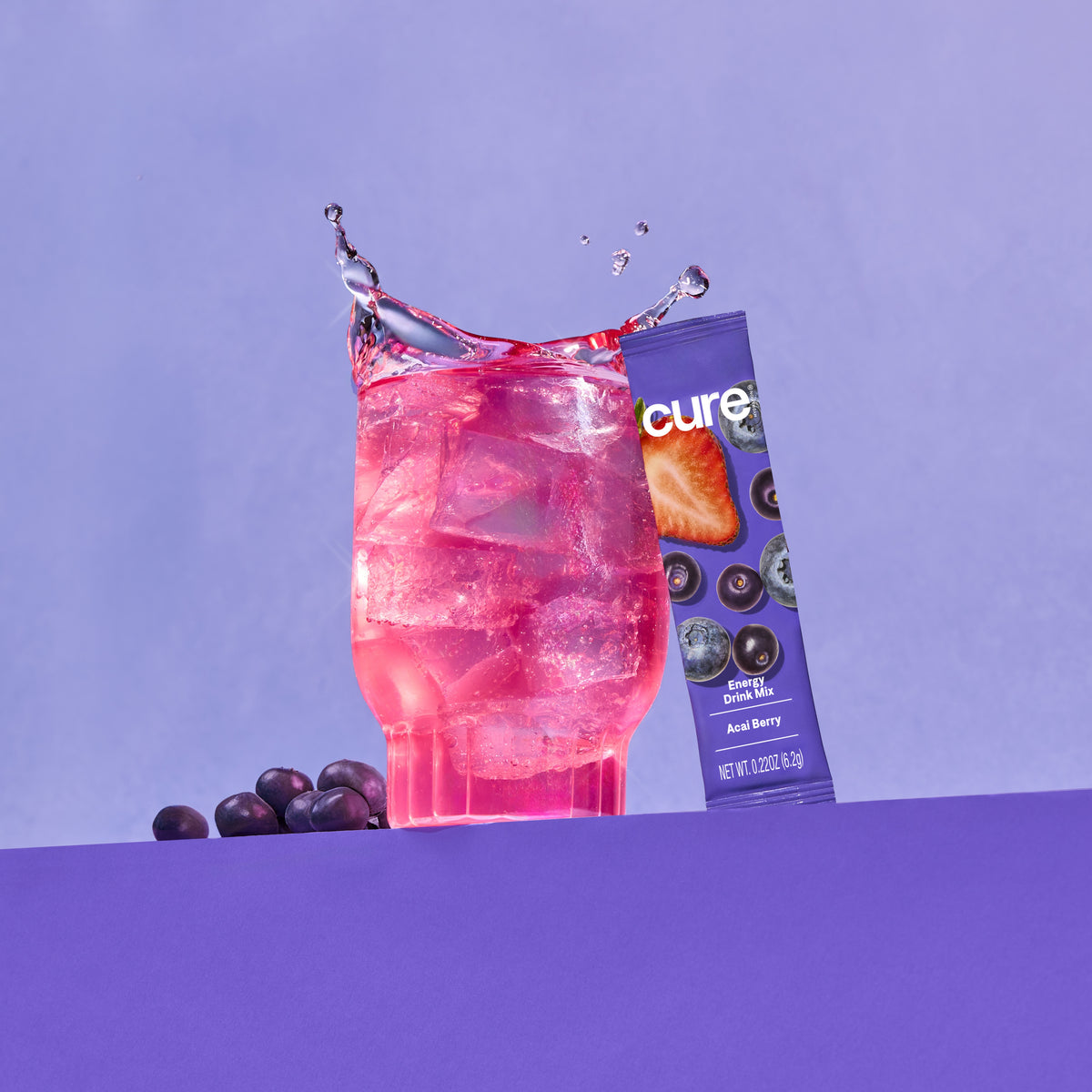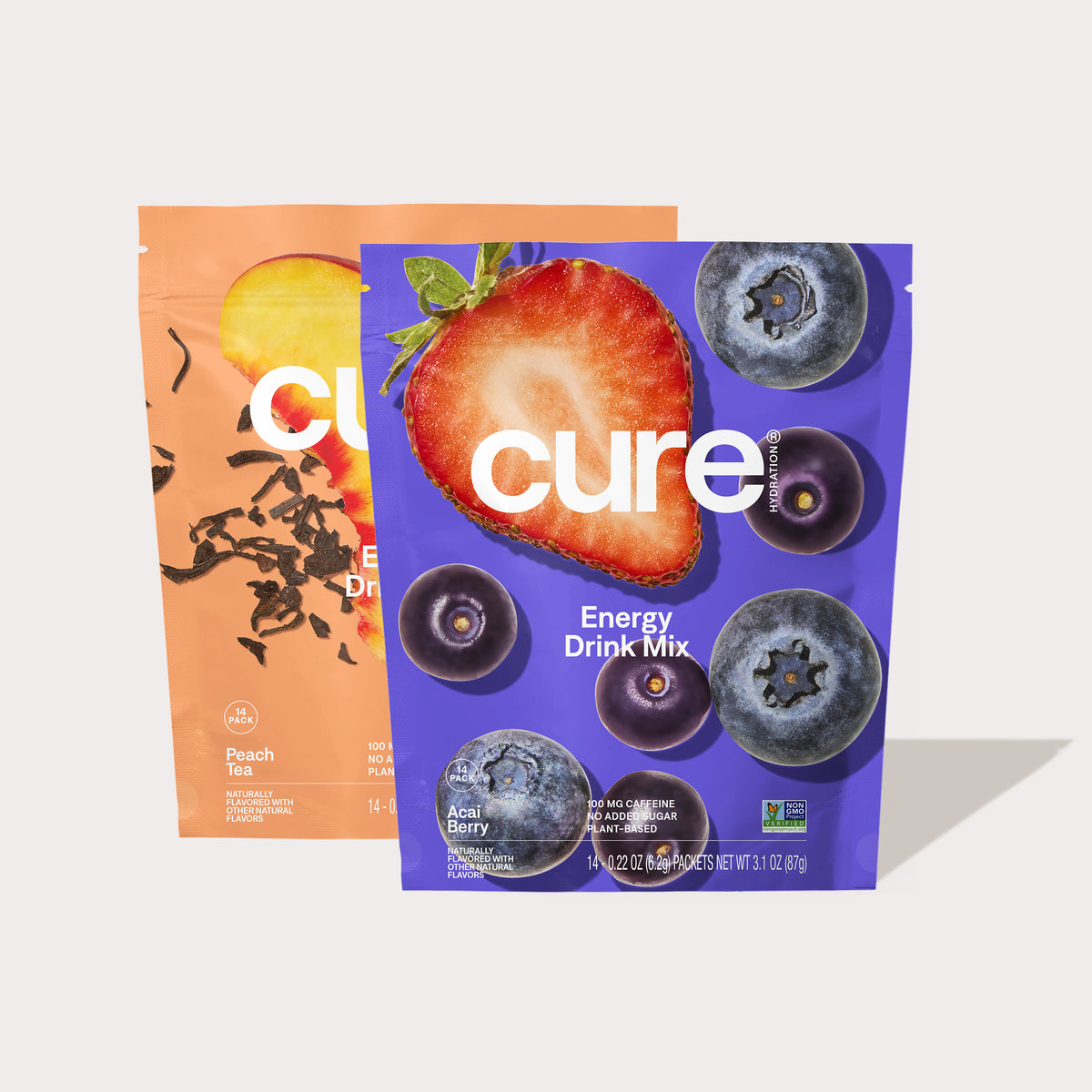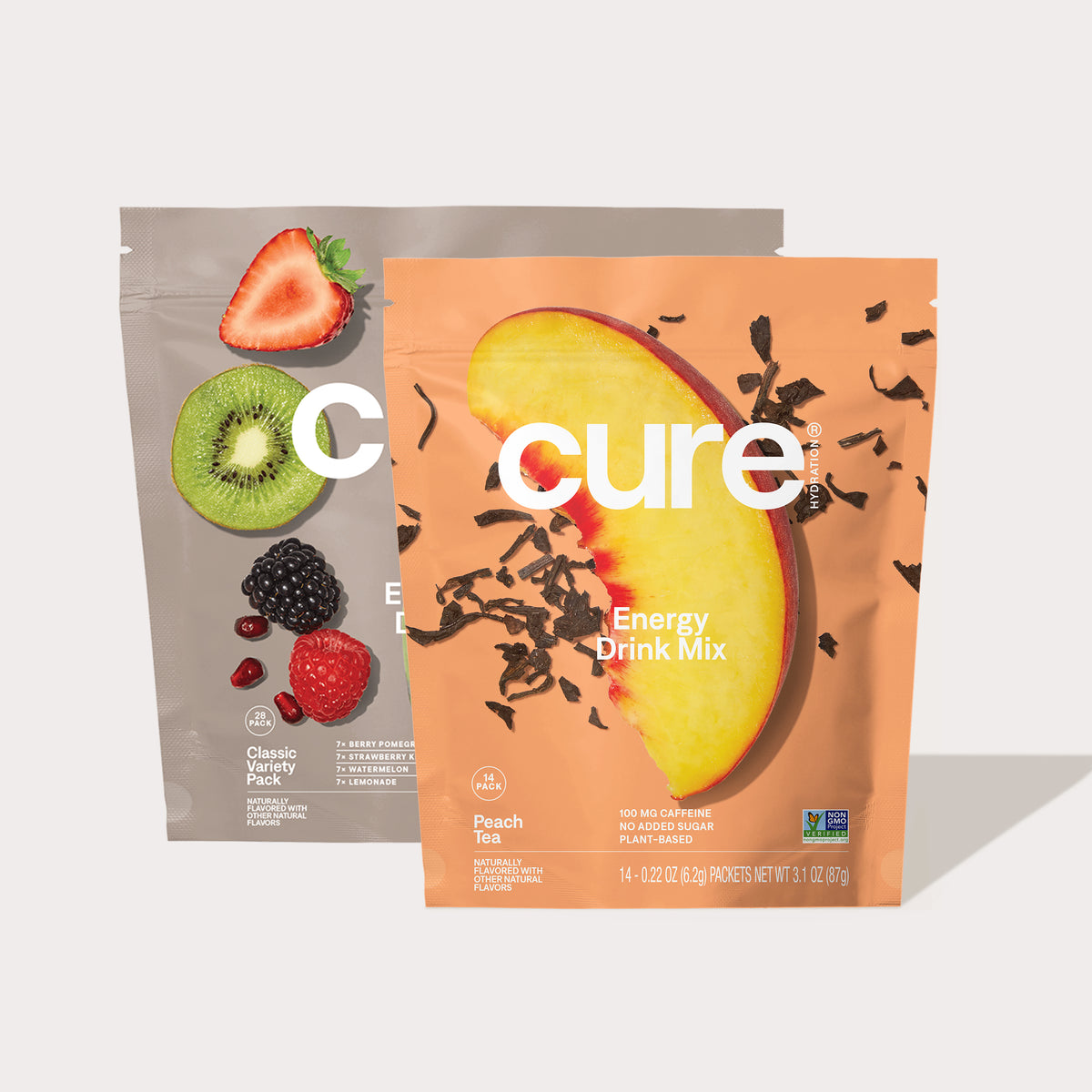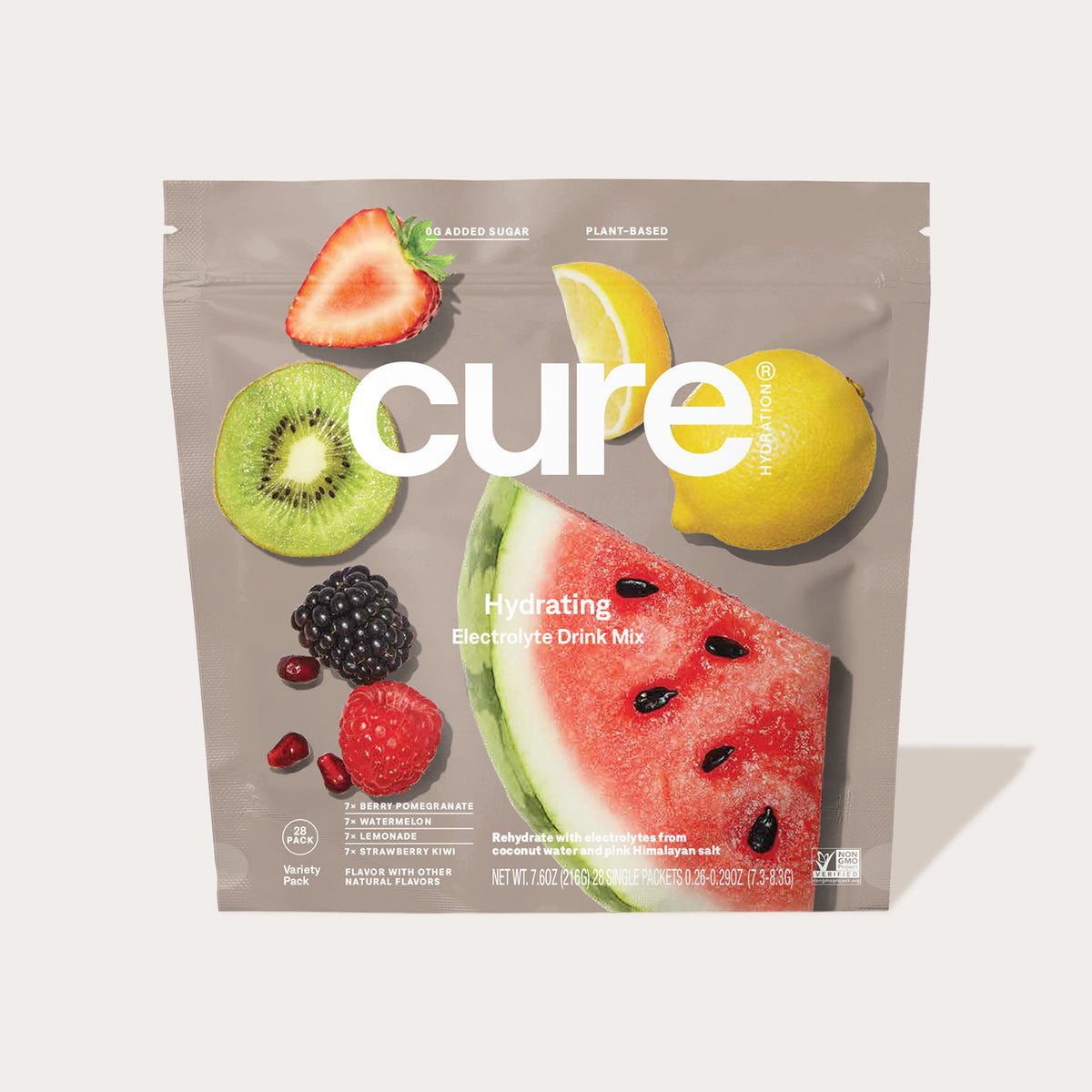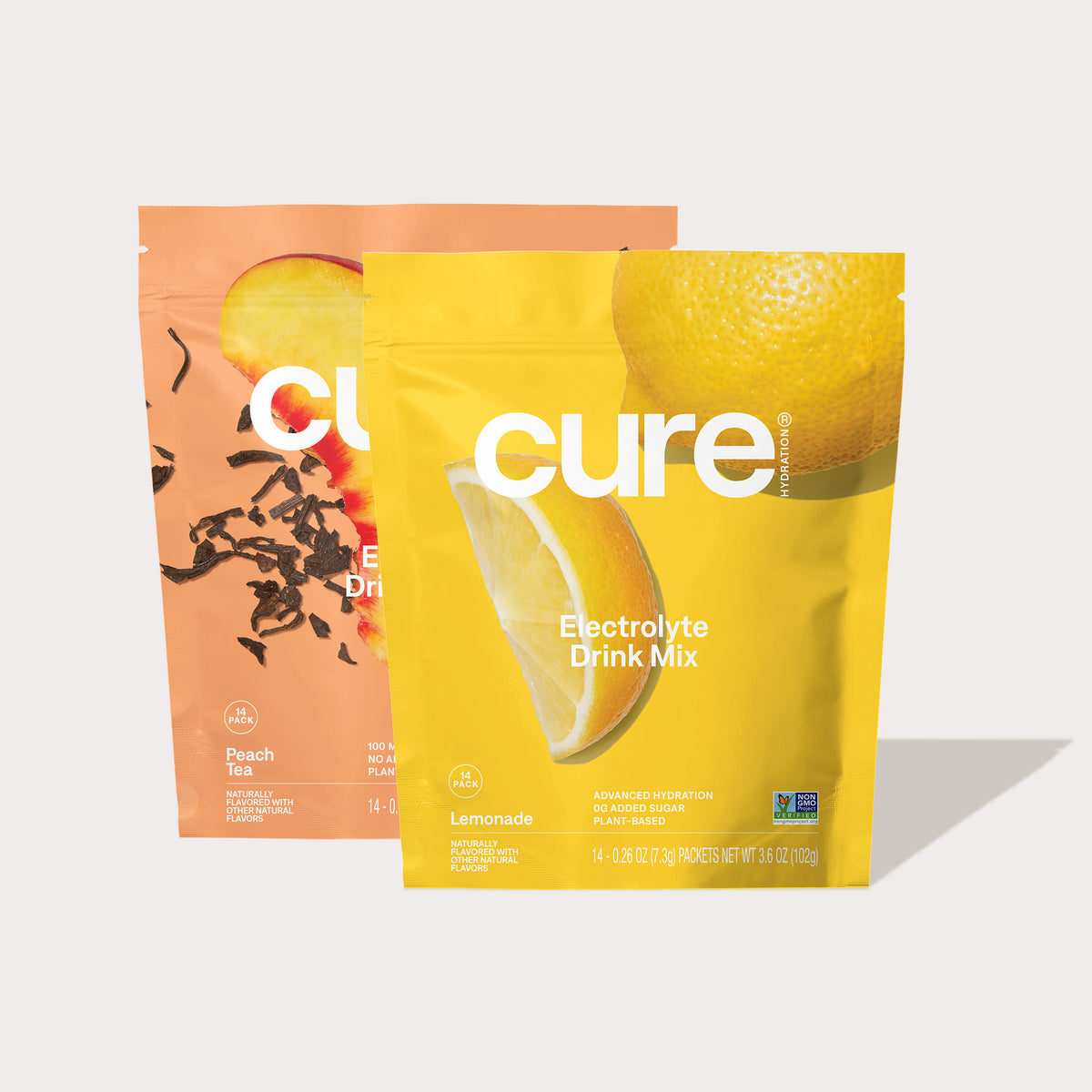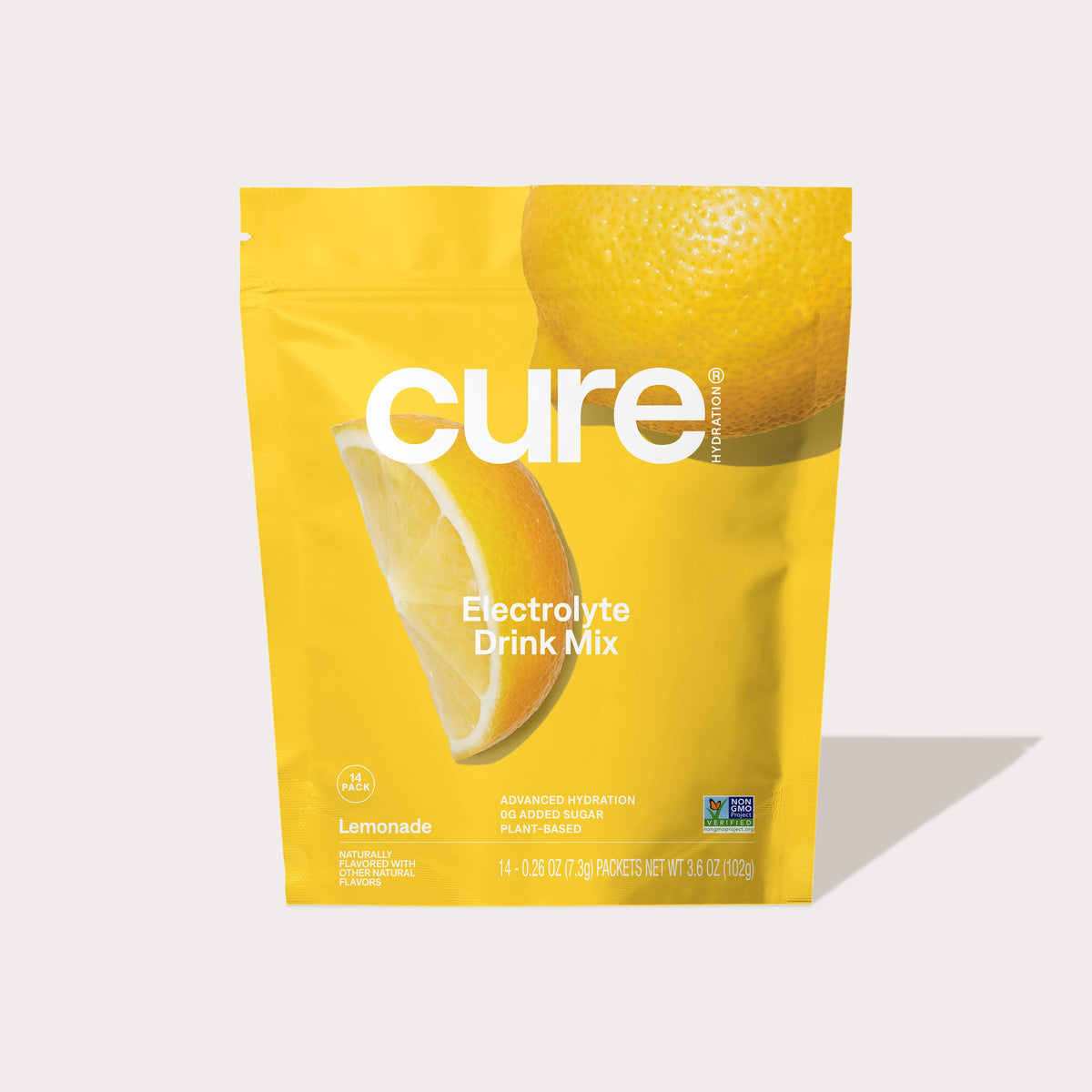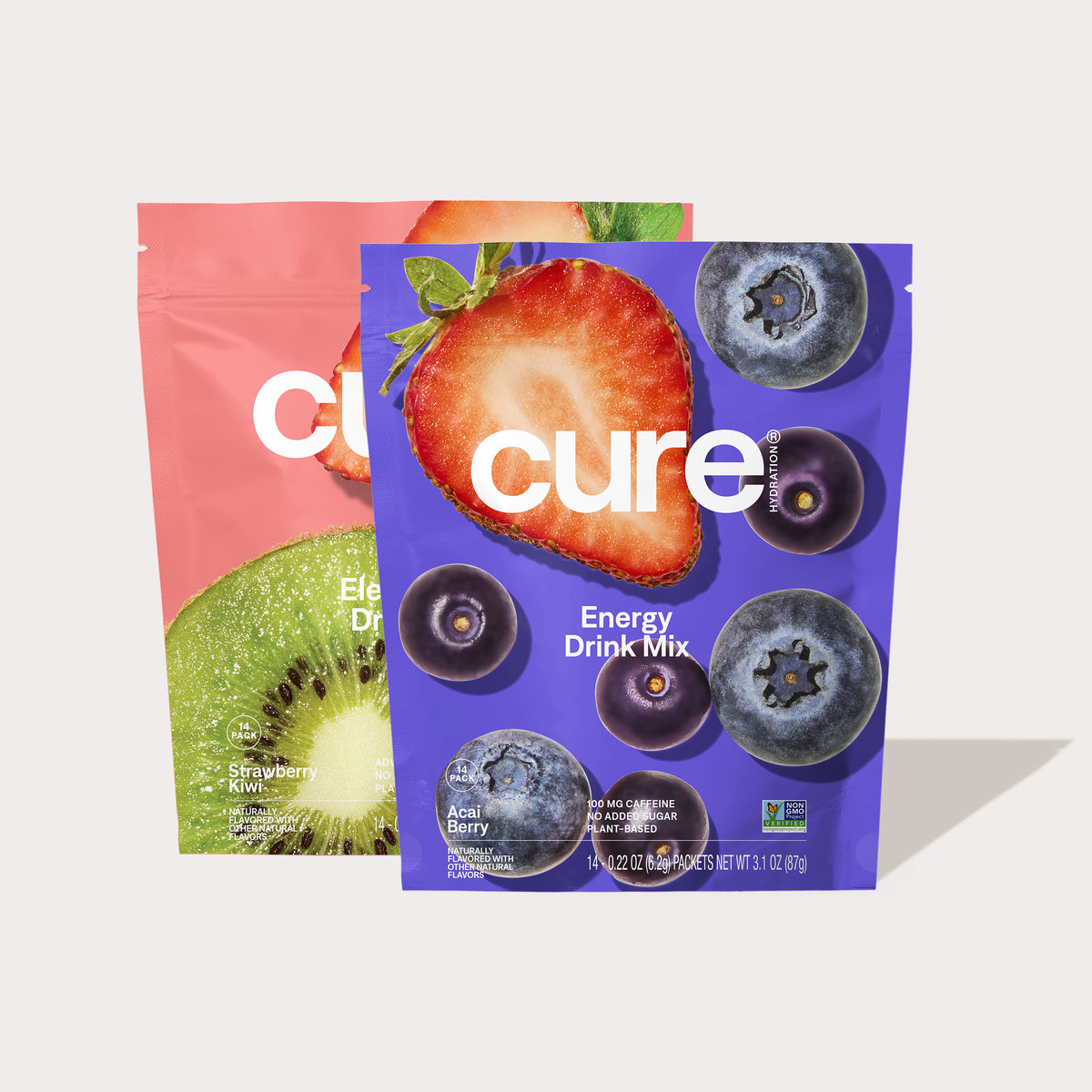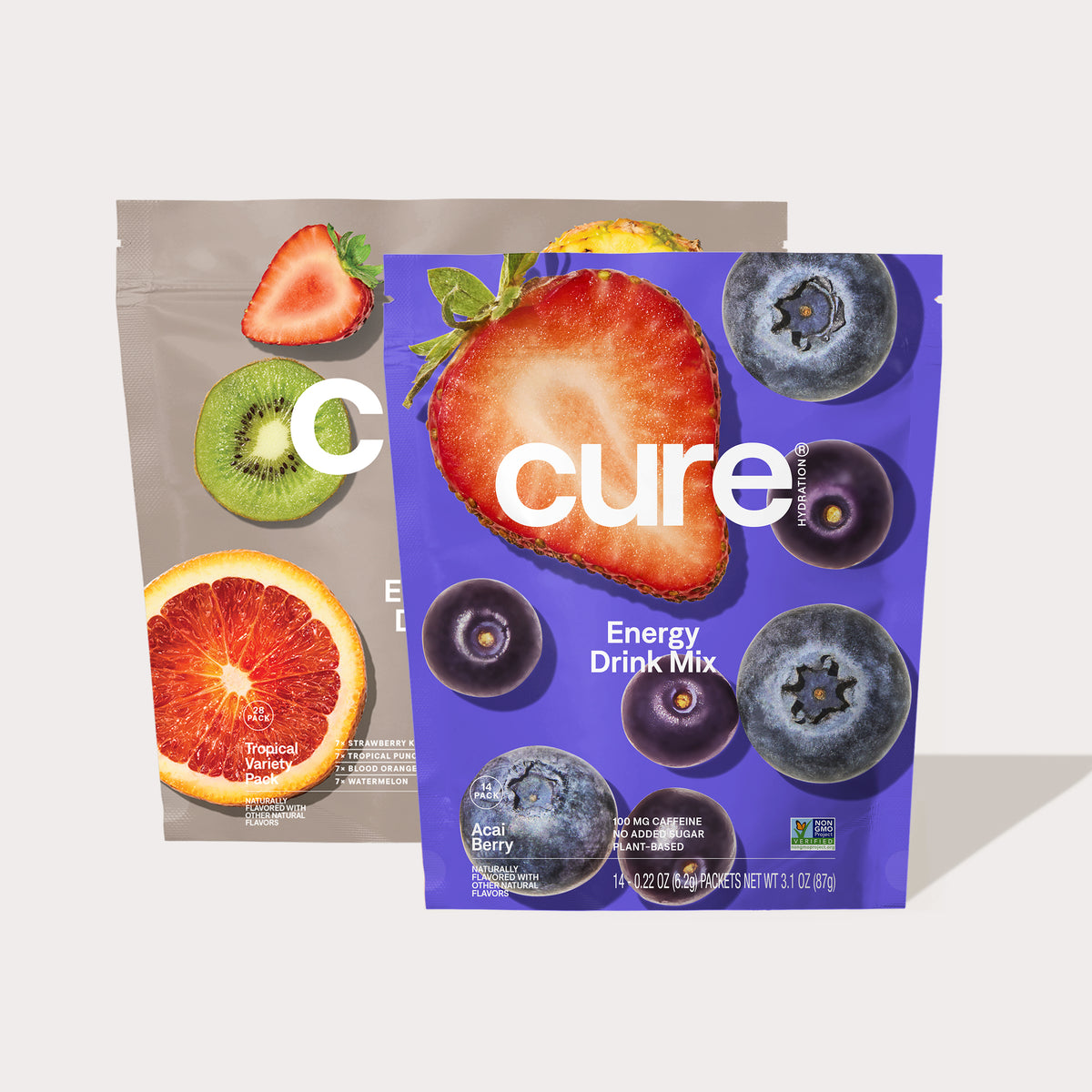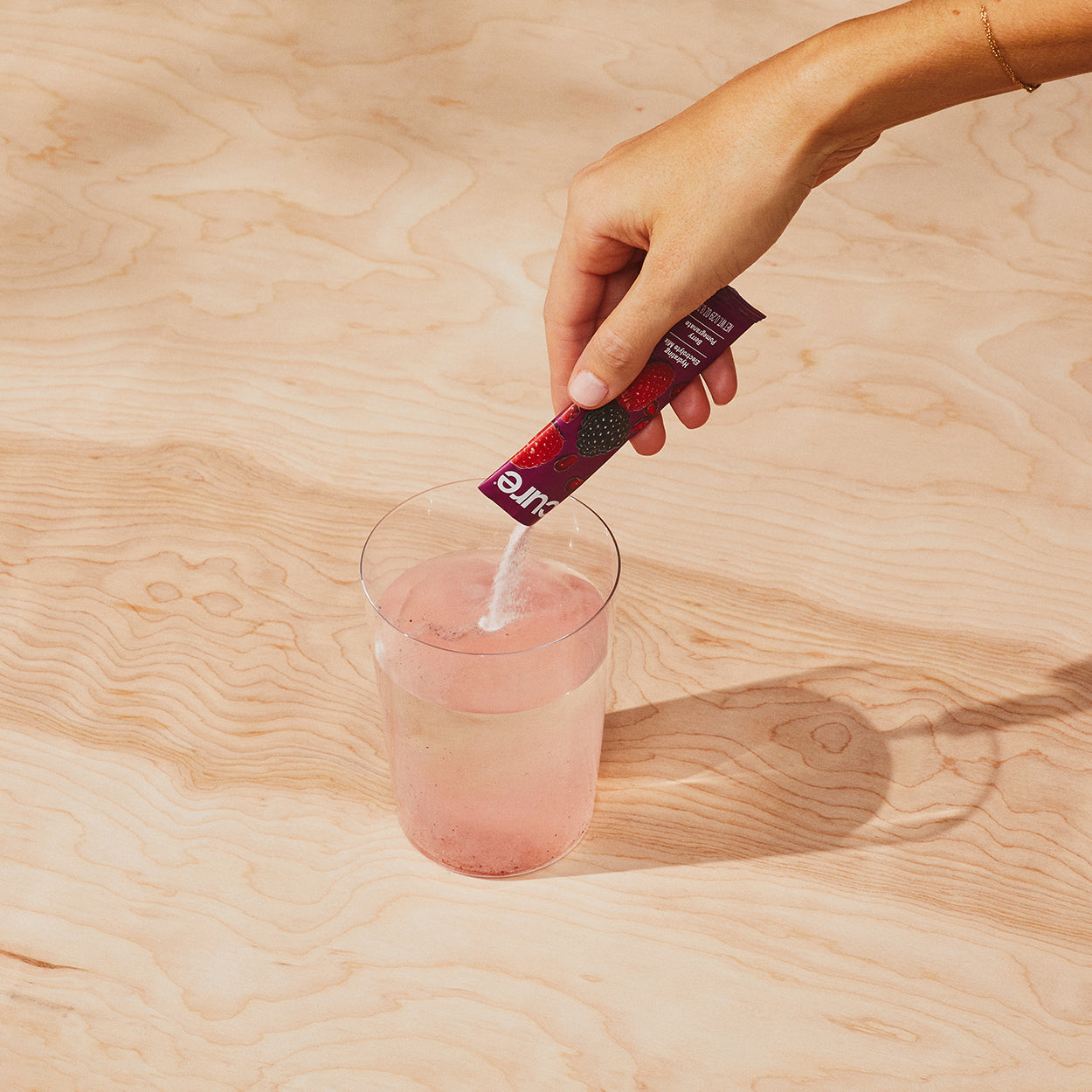If you’re noticing a thin white film on your tongue, you may (understandably) feel a little worried. While the condition referred to as white tongue is mostly harmless, it can sometimes be a sign of something more serious—such as dehydration.
Keep reading this guide from Cure to find out what causes white tongue and how you can get rid of it.
What Is White Tongue?
A white tongue happens when your tongue is coated by a white film. This film might cover the entire surface of your tongue, or it can show up in patches. Along with white tongue, you may also experience bad breath and—in some cases—pain and swelling.
White tongue happens because the tiny bumps on your tongue—also known as papillae—swell up and become inflamed. This happens thanks to bacteria, food, and other debris that get trapped between the papillae. This leads the white-colored papillae to get larger, which is why your tongue takes on a white appearance.
Your mouth is home to thousands of different bacteria, which are mostly harmless. However, when there is an imbalance—which can be caused by your mouth’s pH, how much saliva you produce, and even your temperature—there might be an overgrowth in the “bad” bacteria. Besides giving you a white tongue, this imbalance can lead to other health conditions, such as chronic illness.
For this reason, traditional Chinese medicine has seen the tongue as an indicator of overall health. According to traditional Chinese medicine, the tongue is impacted by “stomach qi,” which is a significant marker of disease. Aside from being an indicator of an illness, the tongue can tell us a lot about a person’s digestion, lymphatic system, blood circulation, presence of yeast, and overall health and wellness.
White tongue can show up suddenly if you get an infection or cause irritation to it. However, for the most part, it builds up gradually over time. It should go away on its own within a few weeks. However, sometimes, you may need to take some steps to get rid of it.
What Causes White Tongue?
White tongue is caused by debris getting trapped between the papillae on your tongue. When they swell up, they can become inflamed. For the most part, this is caused by poor oral hygiene, poor hydration, or a sugar-rich diet. In addition, there are certain (more serious) conditions that can lead to white tongue.
Here are some of the causes of white tongue to consider:
- Poor Oral Hygiene: In most cases, white tongue stems from the lack of brushing and flossing. Not keeping up a regular oral hygiene routine leads to an overgrowth of “bad” bacteria, which can cause the papillae on your tongue to become inflamed and to swell up.
- Oral Lichen Planus: This is a chronic condition that’s marked by inflammation of the mouth. It happens when your immune system attacks the mucous membranes of your mouth. It may appear as white patches on the tongue; however, it can also show up as swelling and open sores.
- Leukoplakia: This condition is caused by an overgrowth of cells on your tongue. When these cells combine with a protein called keratin, they can form a white patch on your tongue. This is often caused by irritation to the mouth, which is brought up by smoking or drinking alcohol.
- Geographic Tongue: This is a condition that’s caused when the skin on your tongue regrows. If the skin sheds too quickly, it can leave patches on your tongue that turn white. Other parts of your tongue may be red and inflamed. This condition has been linked to psoriasis; however, the exact cause remains unknown.
- Oral Thrush: This is an infection caused by the Candida yeast. While everyone has Candida in some amount, it can lead to a white tongue if there’s an overgrowth.
-
Syphilis: This is a sexually transmitted infection caused by a bacterial infection. This is a very uncommon infection with white tongue as one of its symptoms.
How Dehydration Leads to White Tongue
While it’s important to check with your doctor if you suspect any of the above conditions, white tongue is a mostly harmless condition that’s caused by lifestyle factors. It’s very likely that dehydration is one of those factors.
This is because every cell in your body needs water in order to function properly. This includes your mouth, which is responsible for producing saliva. Saliva has dozens of integral functions, which include maintaining homeostasis in the mouth. Thanks to antimicrobial compounds such as hydrogen peroxide, lactoferrin, and various lysozymes, your saliva keeps your mouth safe from harmful pathogens.
Most people produce anywhere from two to four pints of saliva per day. However, you may produce a lot less than this when you're dehydrated.
This can have serious effects on the balance of good and bad bacteria inside your mouth. Not only does an imbalance increase the chances of your tongue’s papillae becoming infected and swelling up, but it can also increase your risk of developing some of the infections listed above.
If you’re dehydrated and not producing enough saliva as a result, you may also feel some other symptoms. Most often, this includes a rough tongue, cracked lips, and dry skin. But because water and electrolytes are so integral to your overall functioning, being dehydrated can affect virtually every other part of your body.
For instance, you may feel more tired than usual since your heart isn’t circulating as much blood as it normally does, which means that less oxygen gets delivered to your organs. You may also feel light-headed and dizzy since your blood pressure may drop as a result of dehydration. And, of course, a sure sign of dehydration is dark-colored urine—which normally should be light yellow.
How Can I Get Rid of a White Tongue?
In most cases, white tongue is harmless and temporary. If it’s caused by dehydration, then properly rehydrating can cause it to go away on its own fairly quickly. If your white tongue isn’t accompanied by any other symptoms, there’s no reason to get alarmed.
However, if you also experience pain or itching, it’s a good idea to see your doctor. As much as adopting a healthy lifestyle is important in preventing white tongue, sometimes it can be a sign of an underlying condition. For this reason, it’s essential to get it checked out as soon as you can.
Even if your white tongue isn’t caused by another health condition, it can still give you insight into the overall status of your health. The bacteria living inside your mouth—both good and bad—play a variety of roles. This includes:
- Creating and processing vitamins, lipids, and proteins
- Helping you to digest nutrients from your food
- Promoting your immune system
- Maintaining homeostasis throughout your entire body
- Providing you with energy
When you consider the various functions that bacteria play in your body, it makes sense to want to keep your mouth’s bacteria as well-balanced as possible.
In addition, the health of an individual’s tongue is associated with various chronic diseases. Researchers found a link between tongue health and conditions such as diabetes, gastritis, and even cancer. For this reason, noticing that you have a white tongue can be a great way to take charge of your health and wellness.
You can work towards optimal health by drinking the right amount of water and supplementing with electrolytes. This will keep your mouth healthy and improve the functioning of virtually every part of your body.
Aside from that, it’s important to keep up a consistent oral routine that includes regular brushing and flossing while keeping sugar to a minimum to support your oral health.
Stay Hydrated
While water is usually the go-to for those feeling thirsty, it isn’t enough on its own. That’s because your body also needs the proper ratio of electrolytes—such as sodium and potassium—in order to be properly hydrated. While conventional sports drinks contain these electrolytes, they also contain many synthetic ingredients that we don’t ever want to put into our bodies.
That’s where Cure comes in. We are the only hydration formula that’s made entirely with organic ingredients. We use pink Himalayan salt to provide you with sodium and sustainably-sourced organic coconut water for potassium and glucose. We don’t use anything artificial, and we don’t add any sugar. Plus, we’re 100% plant-based.
With tons of delicious flavors to choose from, you’ll be able to stay hydrated with ease—all while feeling your best. That’s our commitment to your wellness. Drink up!
Sources:
Tongue Coating and the Salivary Microbial Communities Vary in Children with Halitosis | Nature

